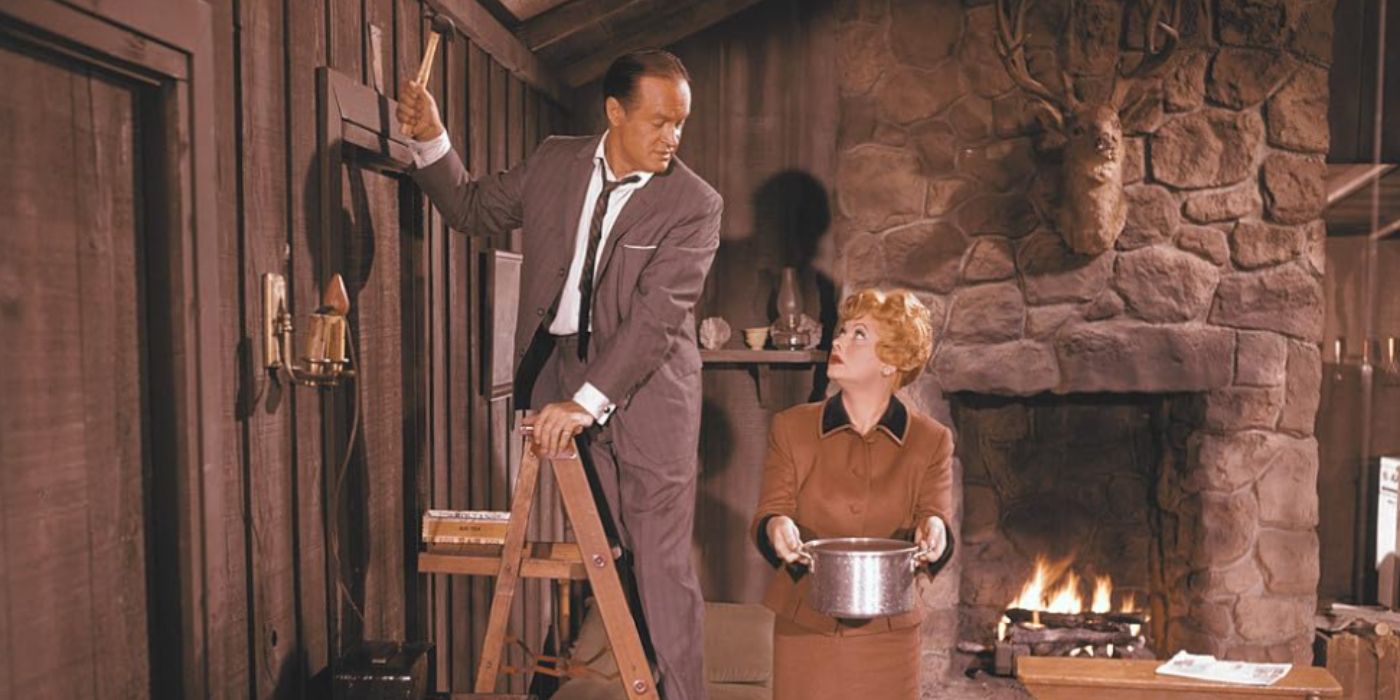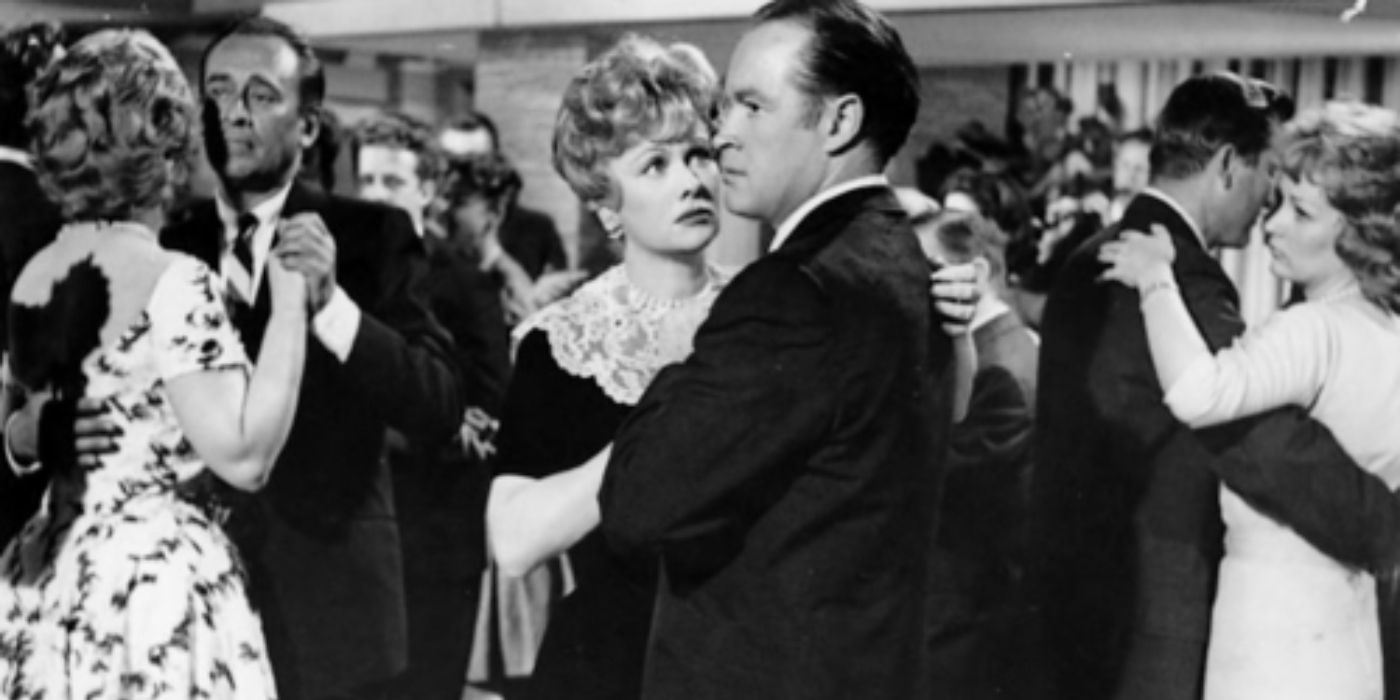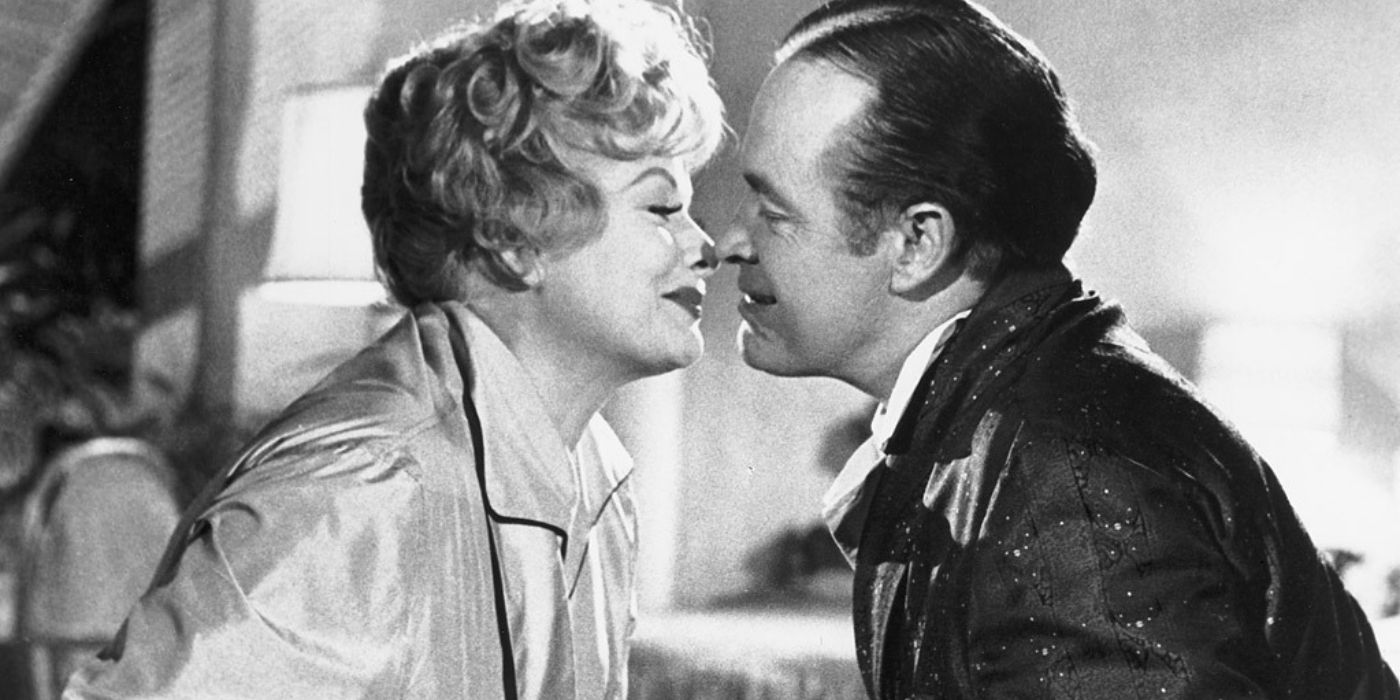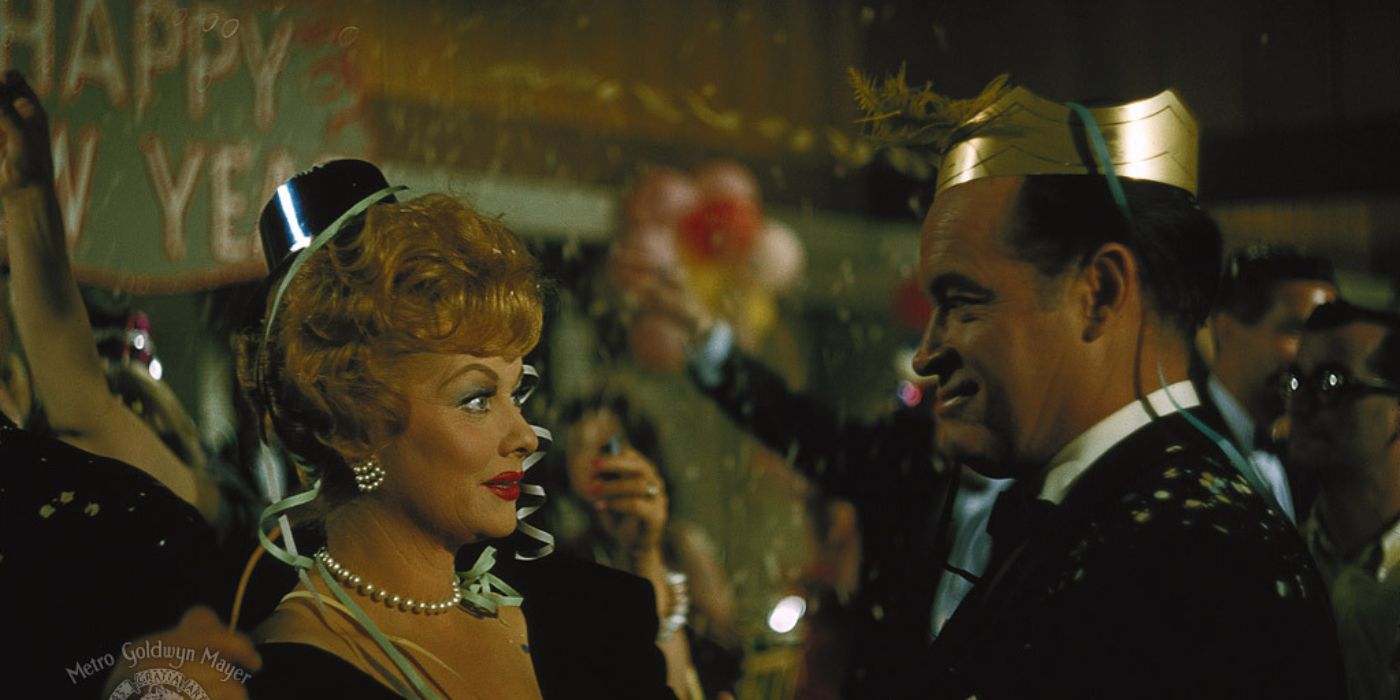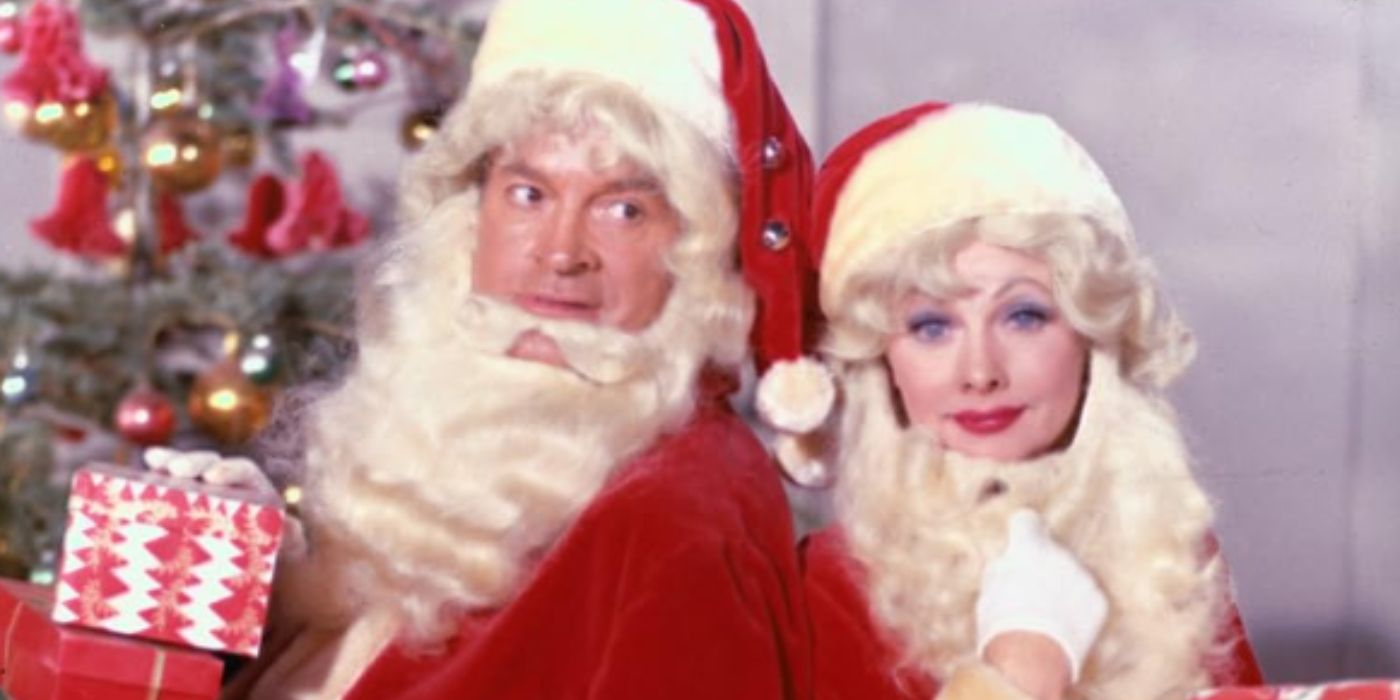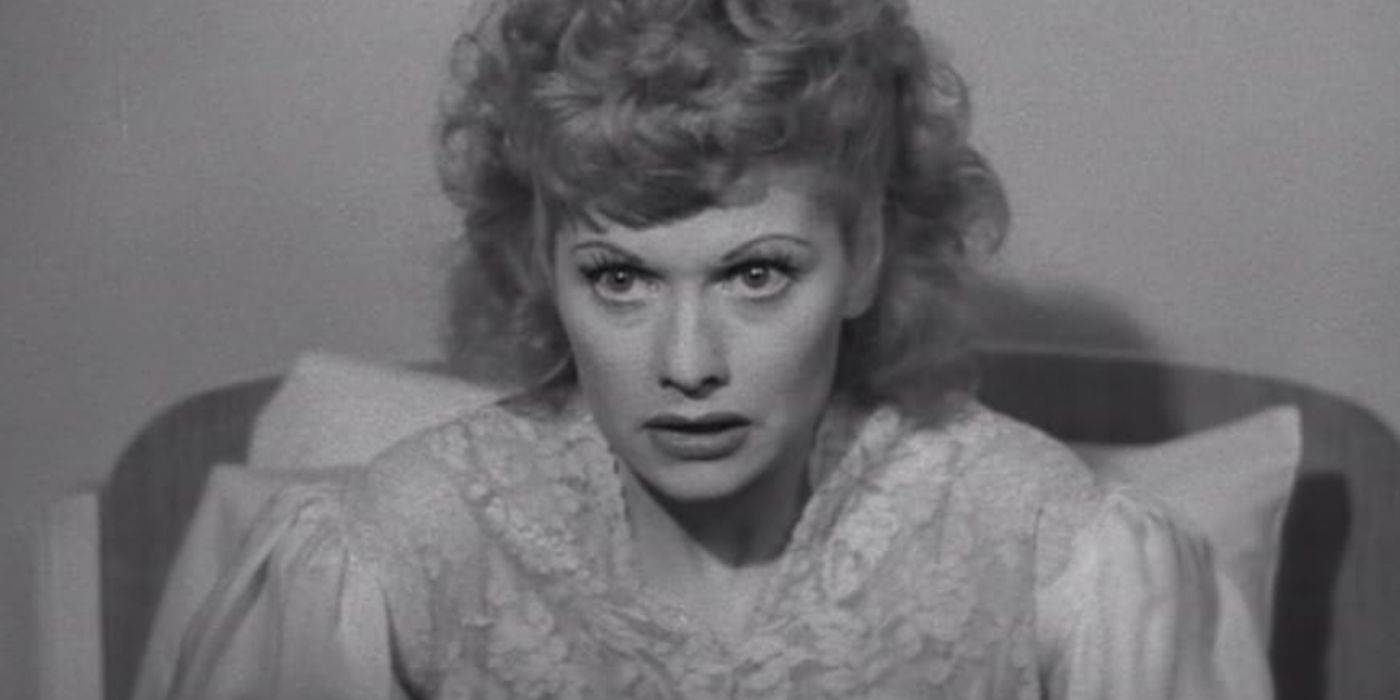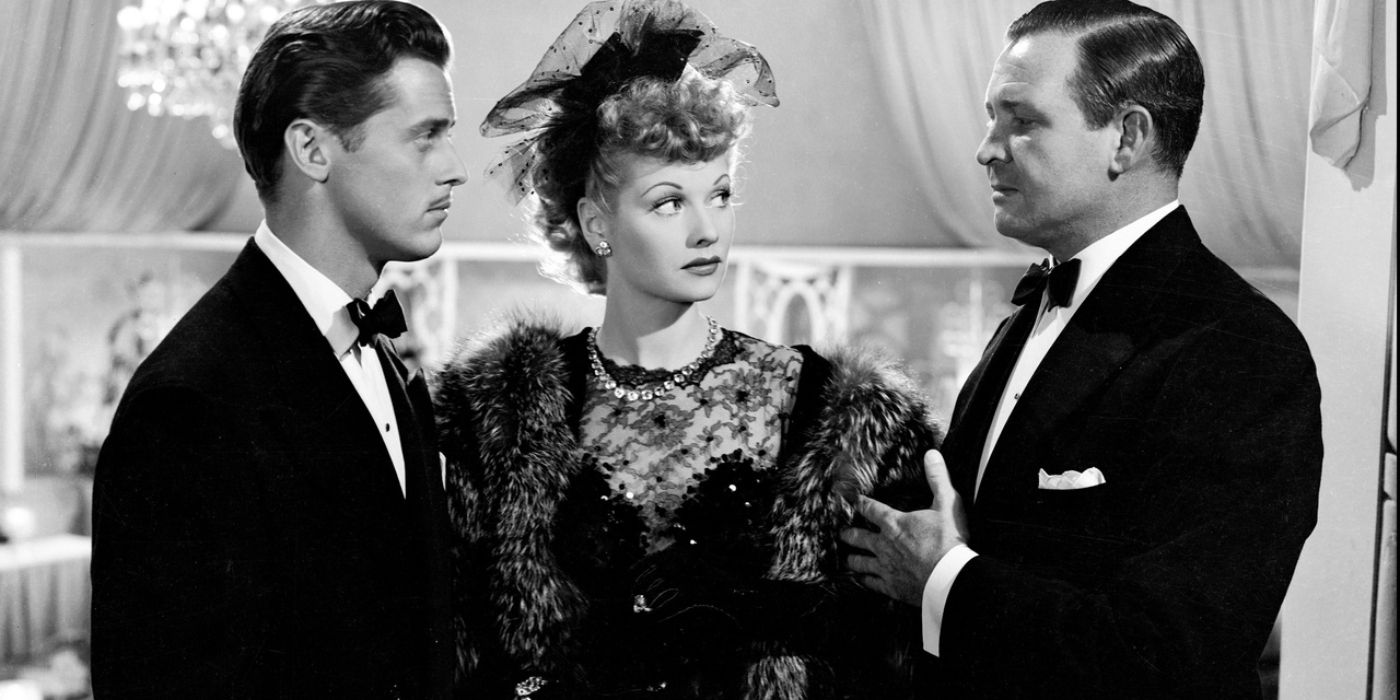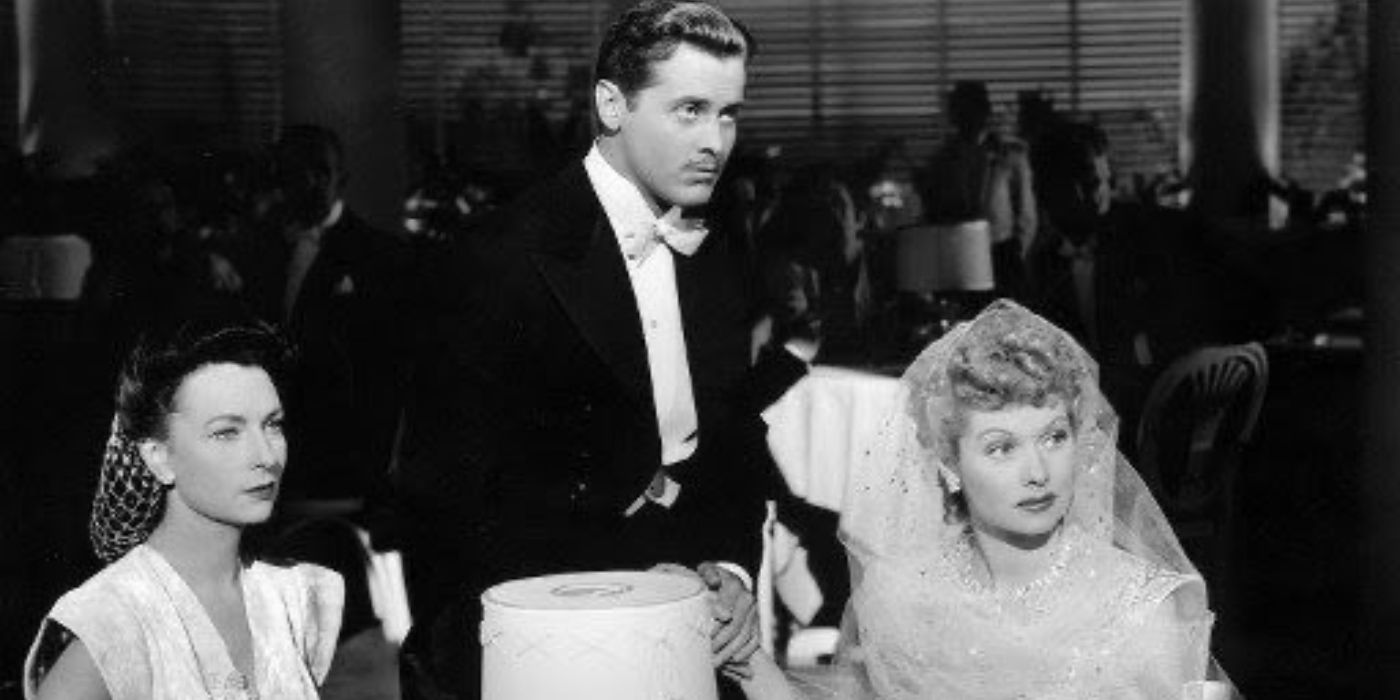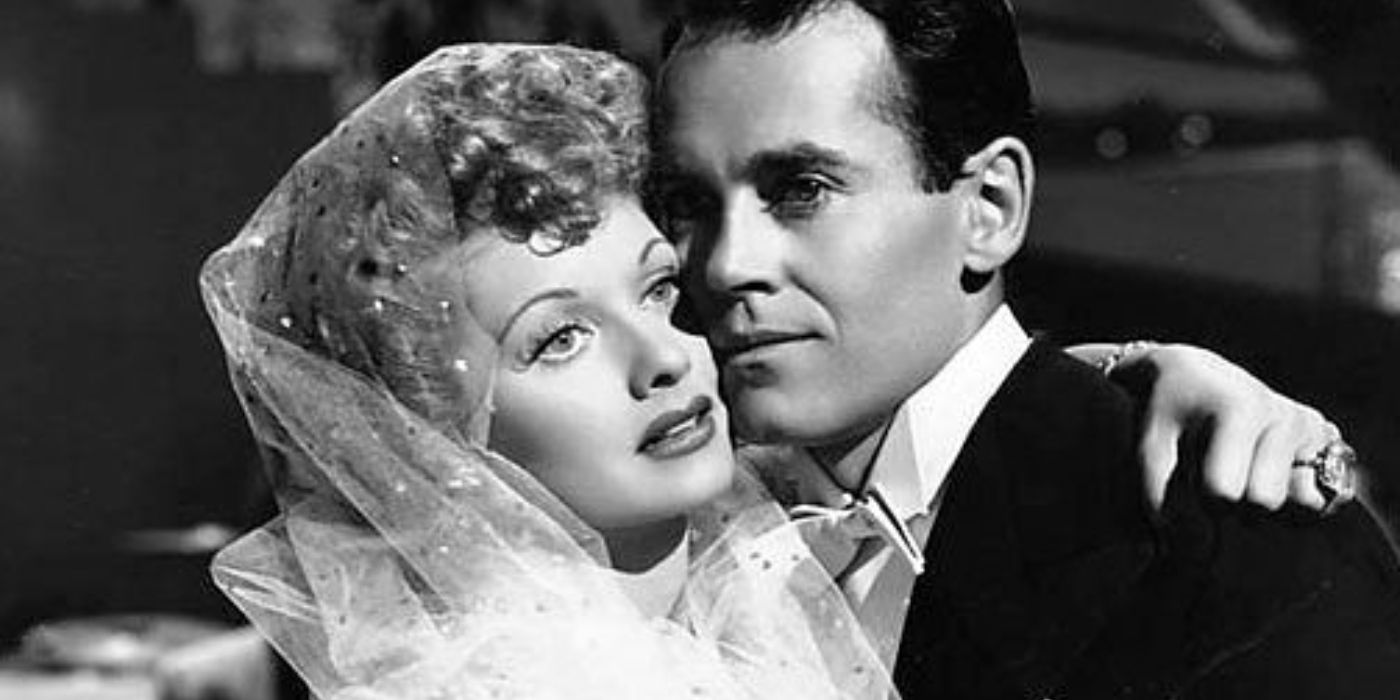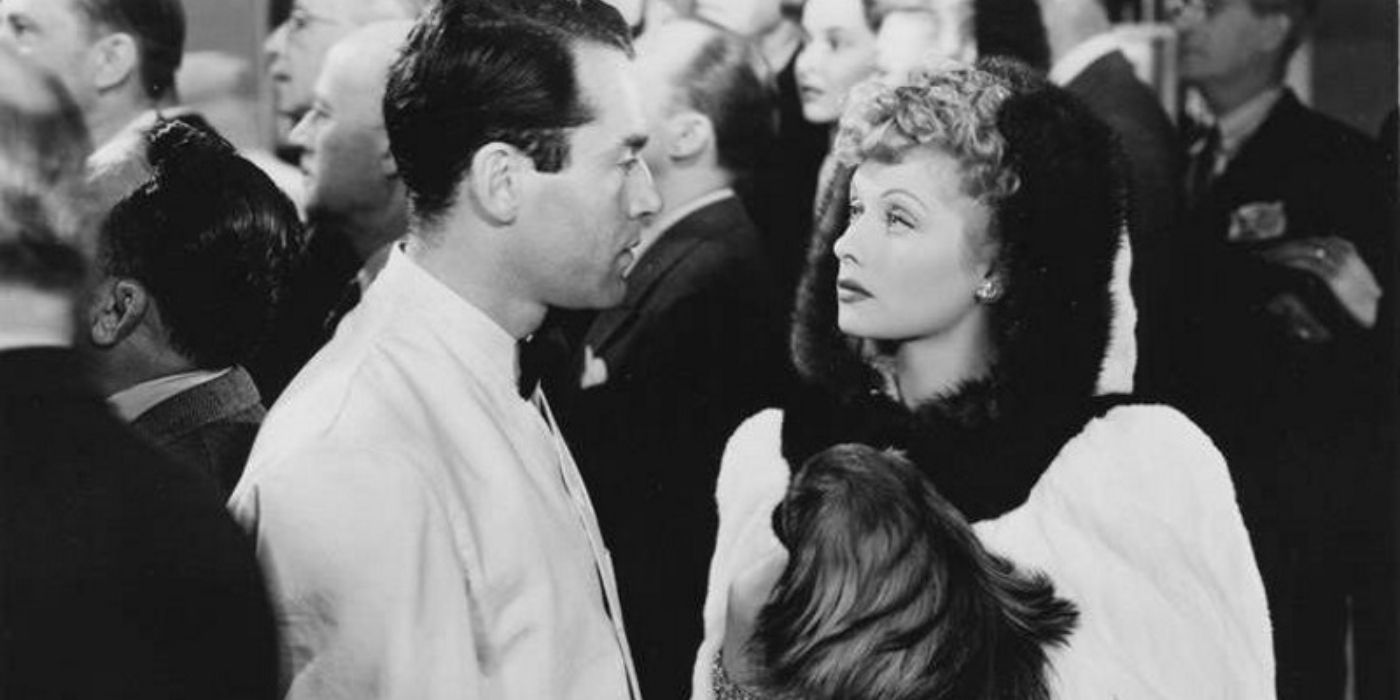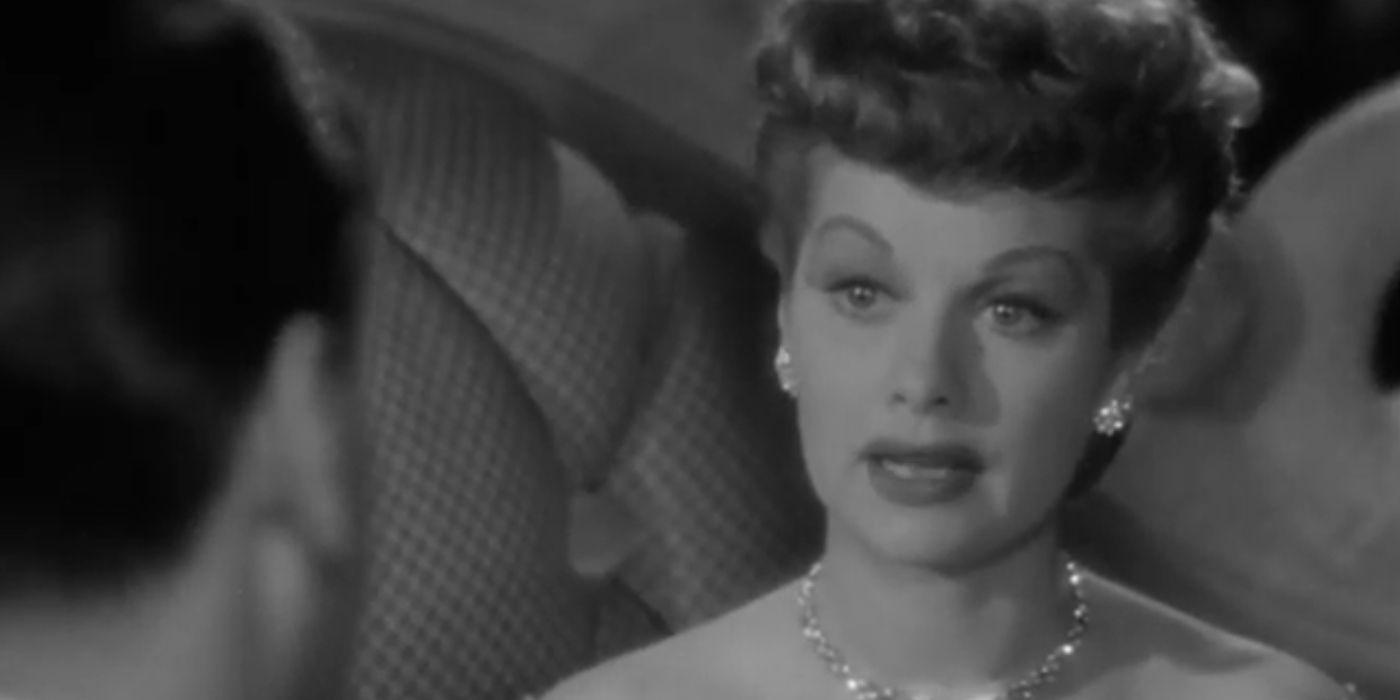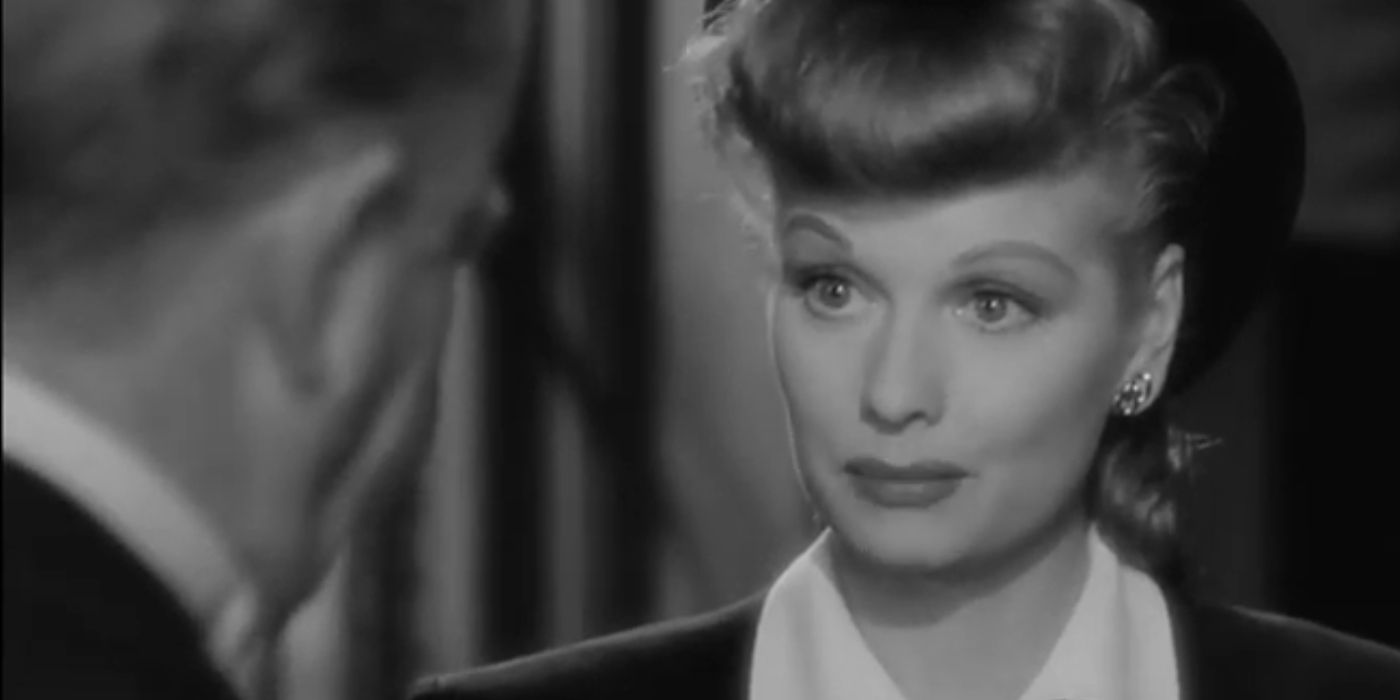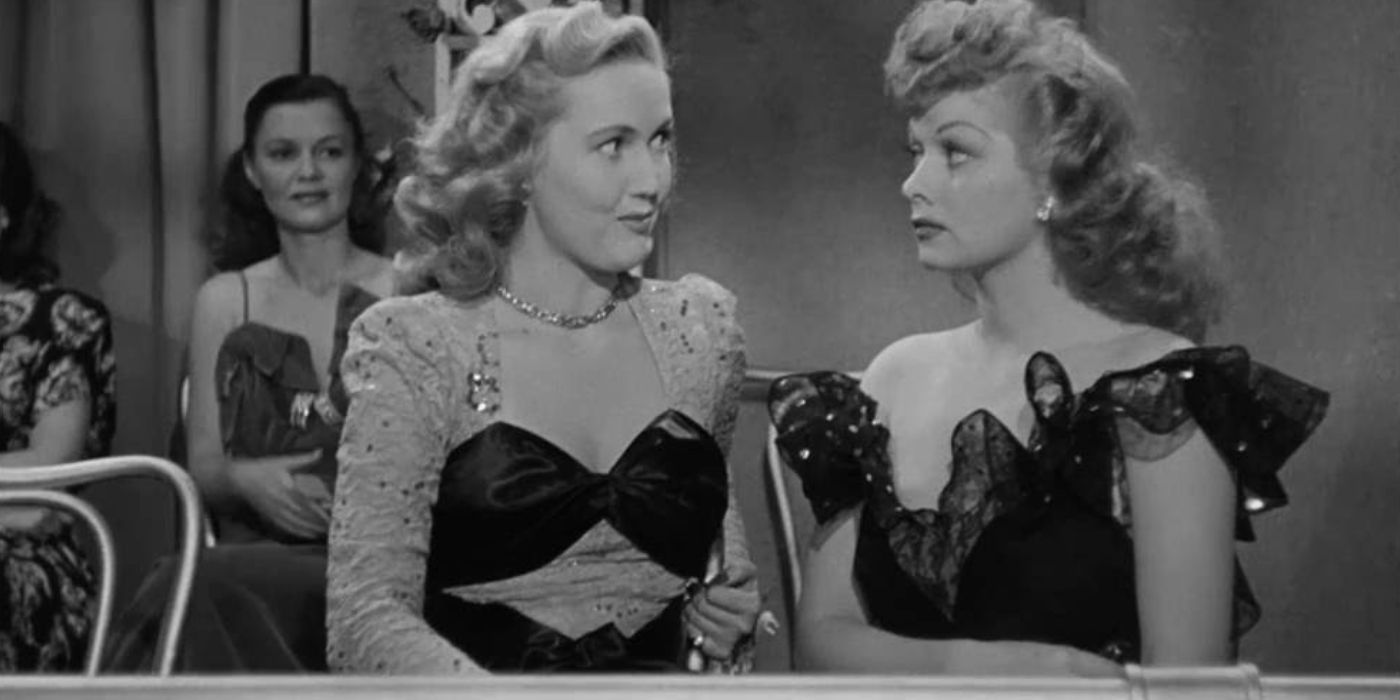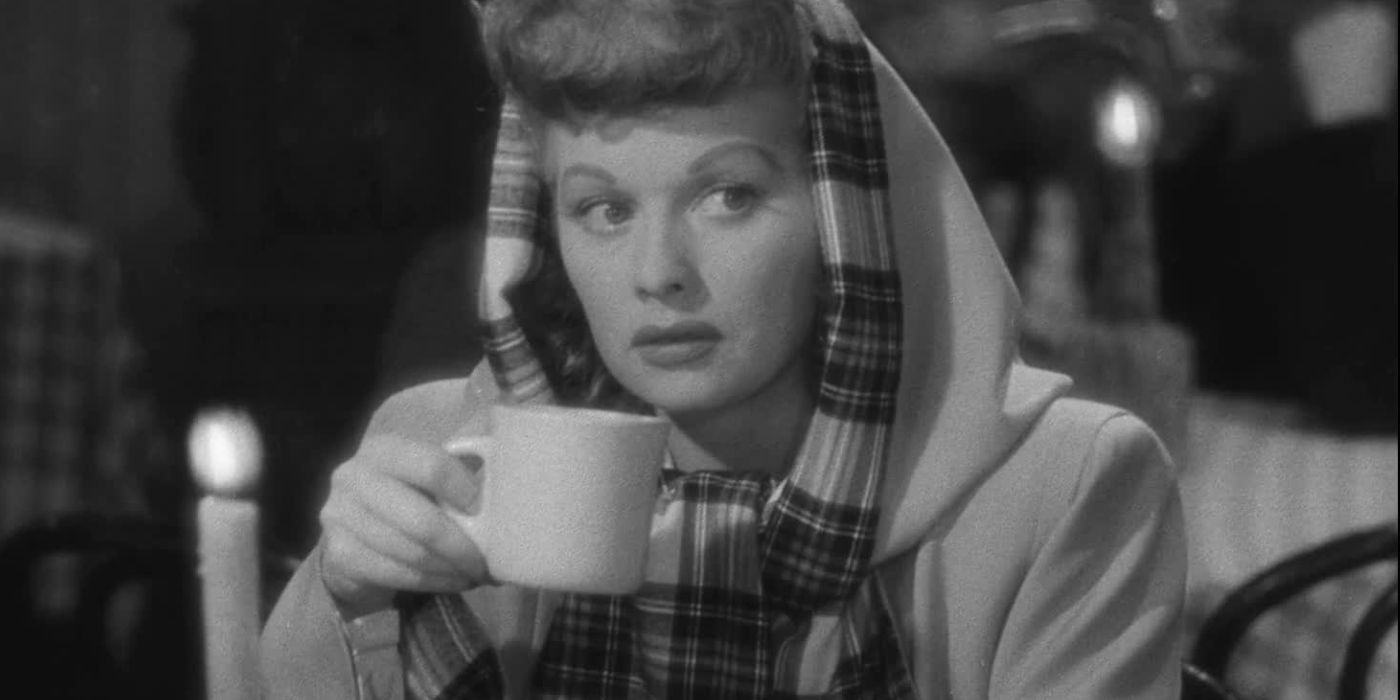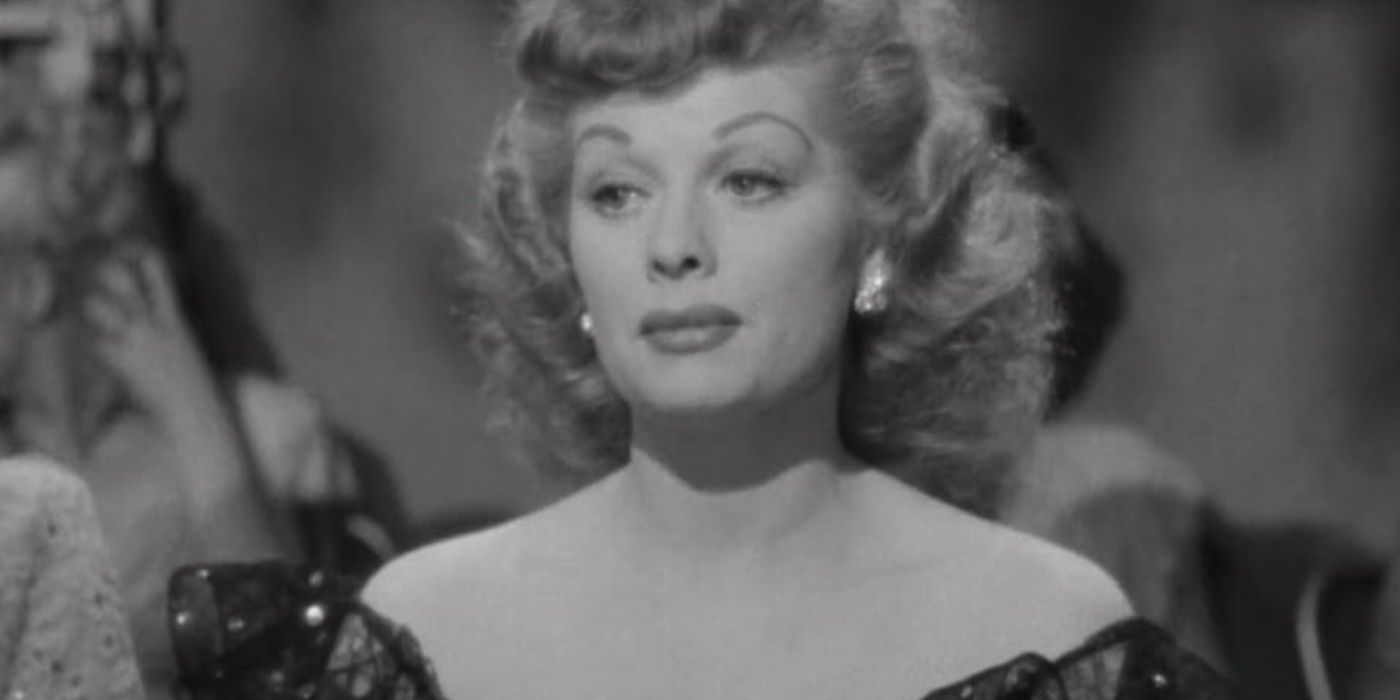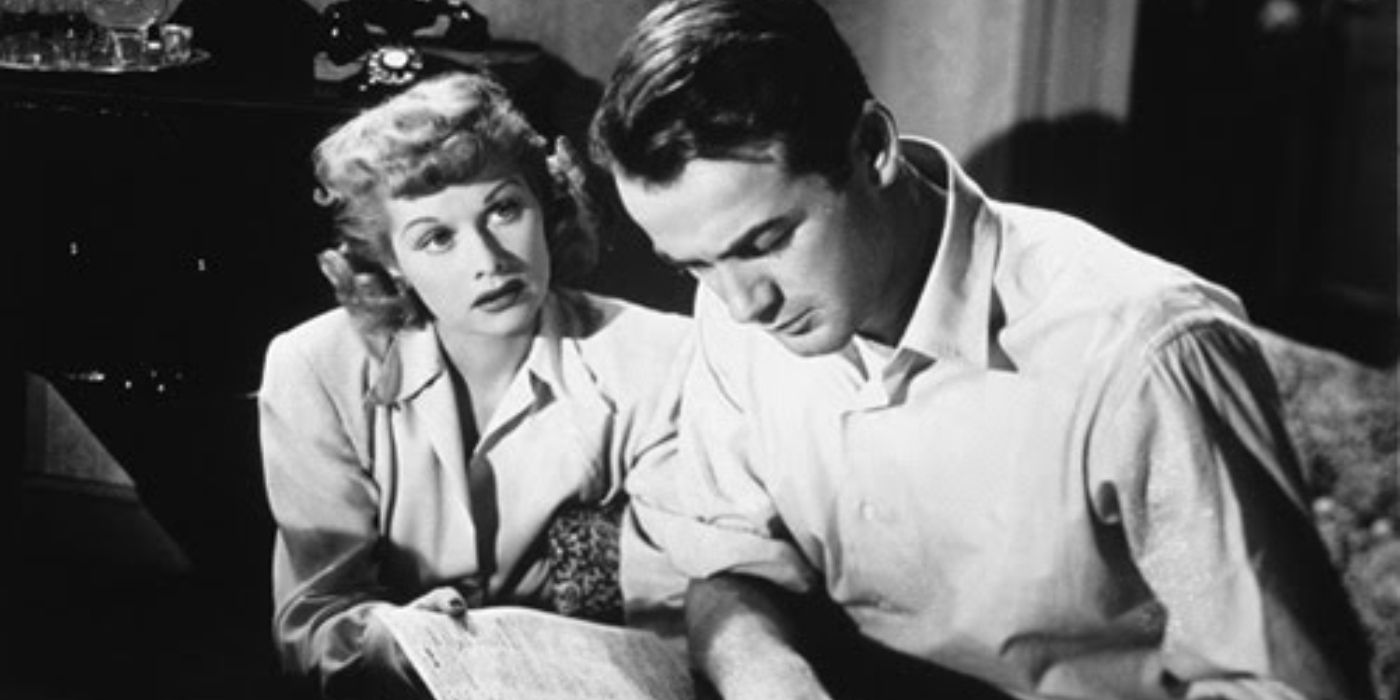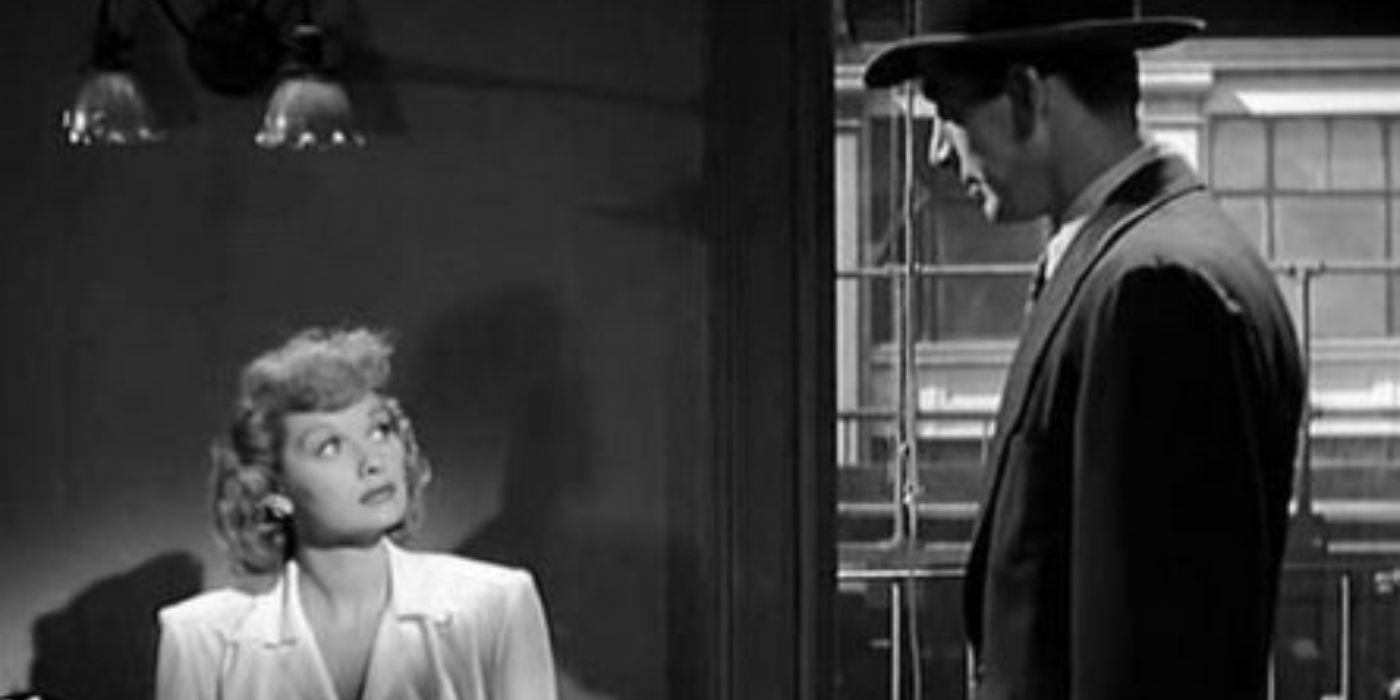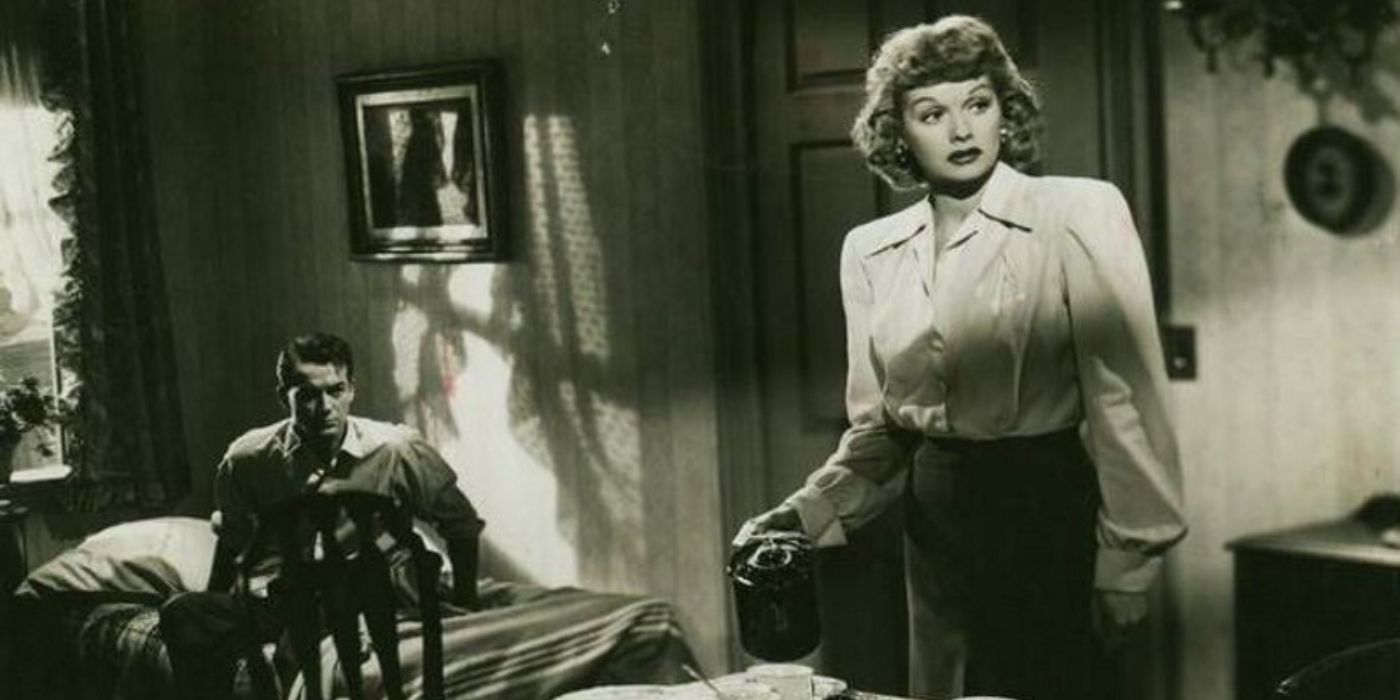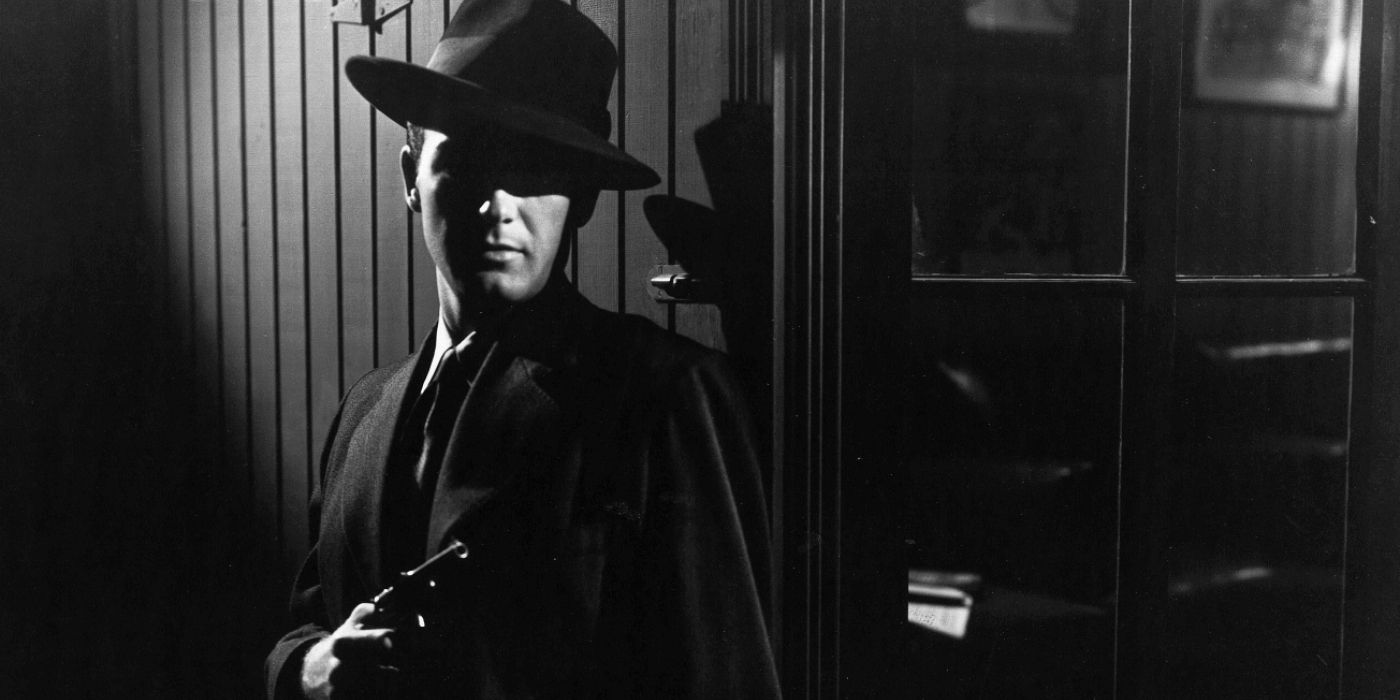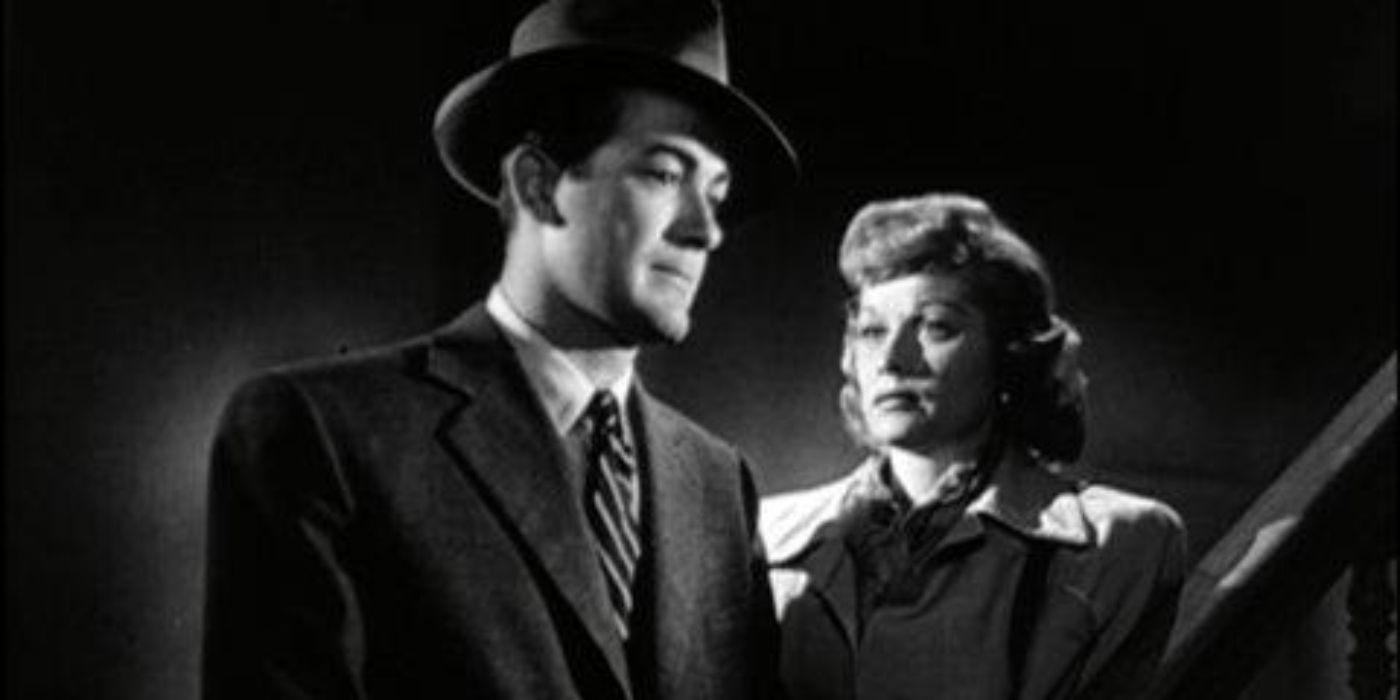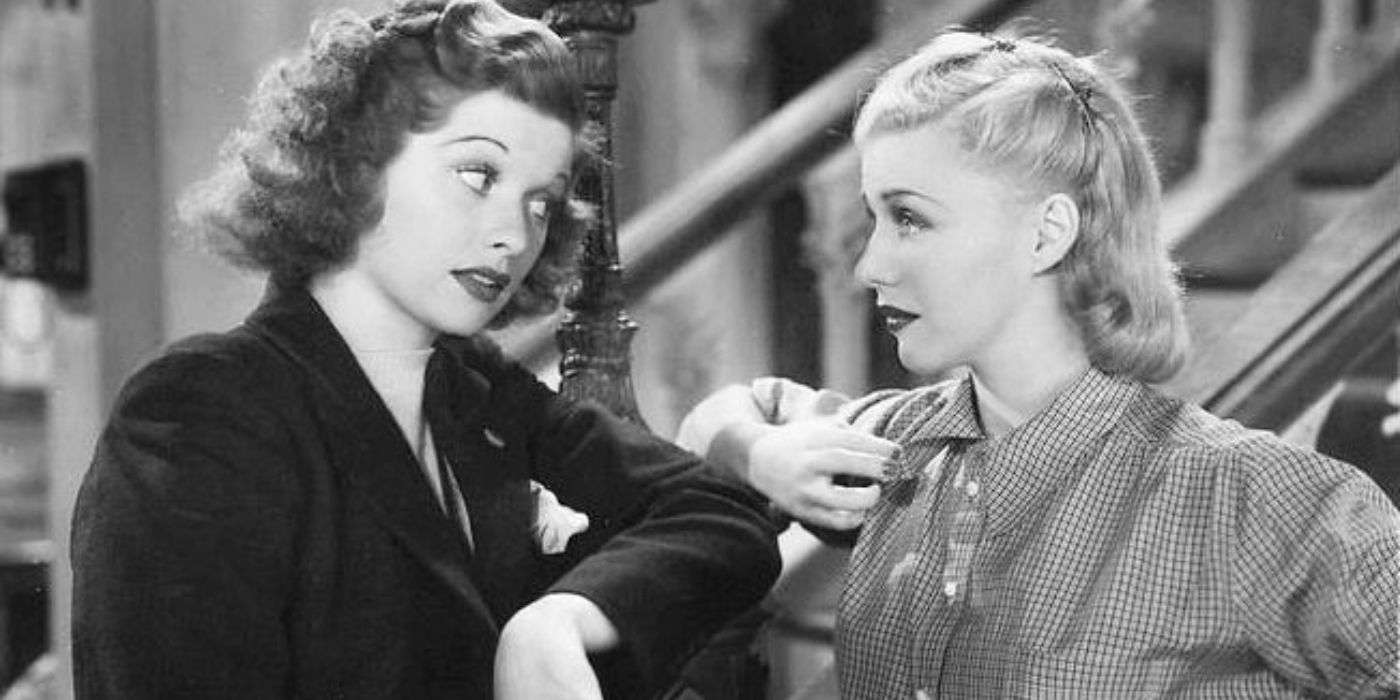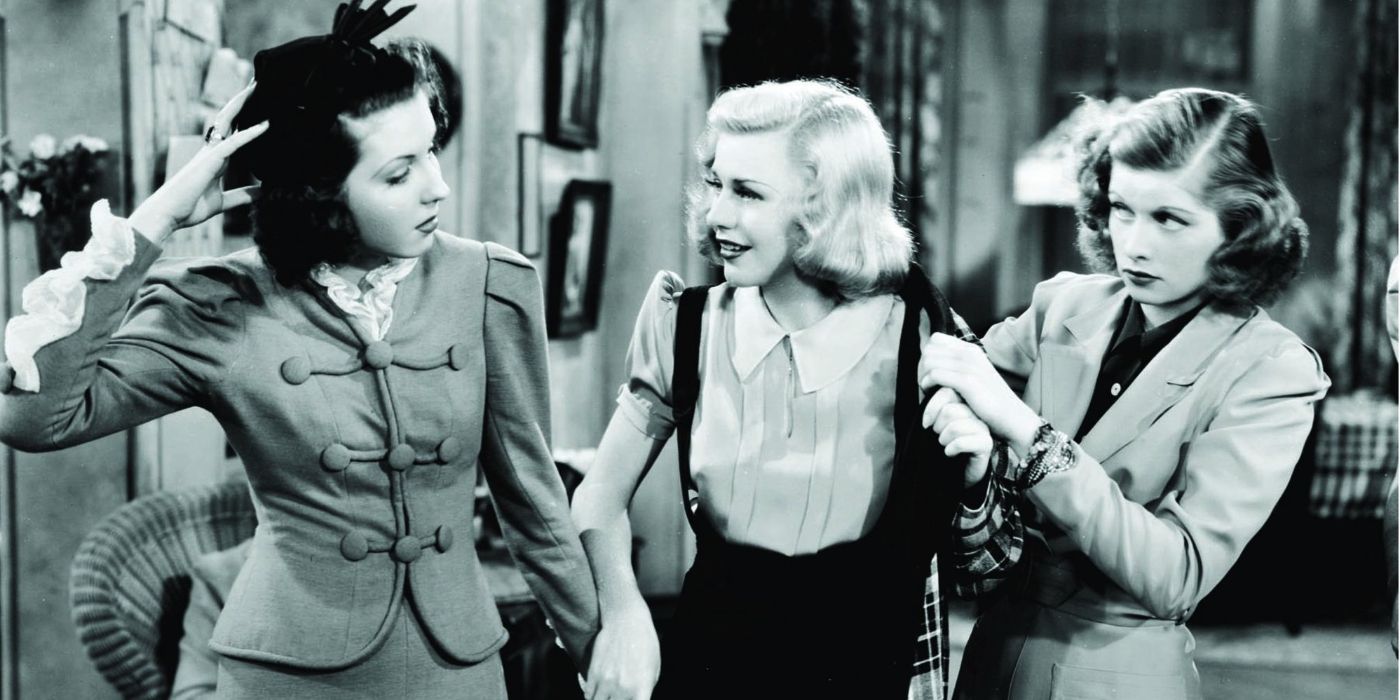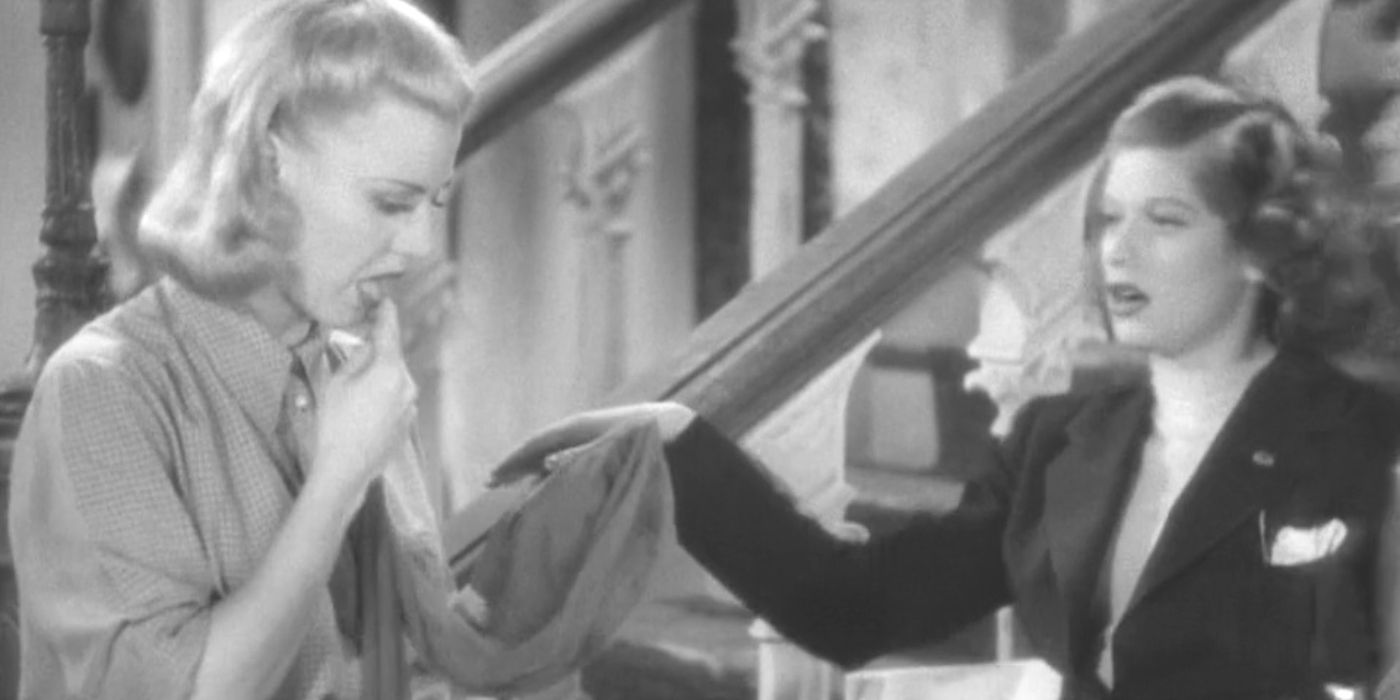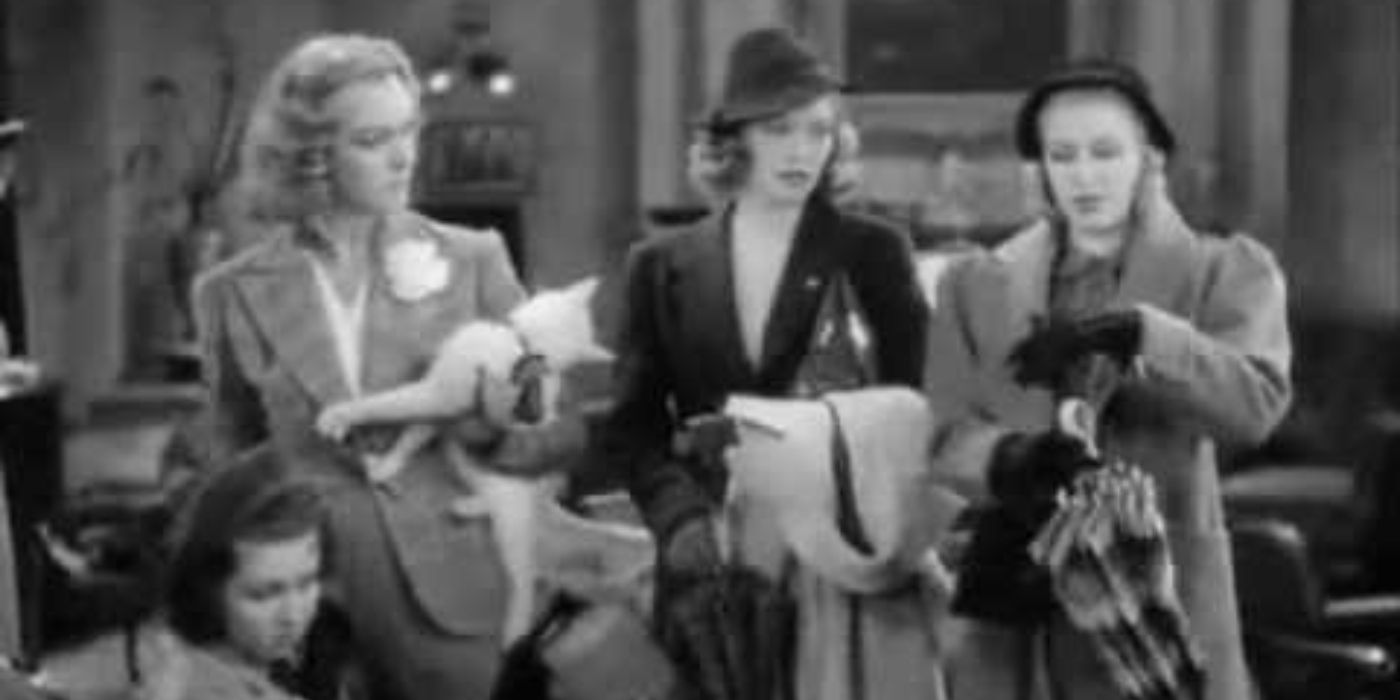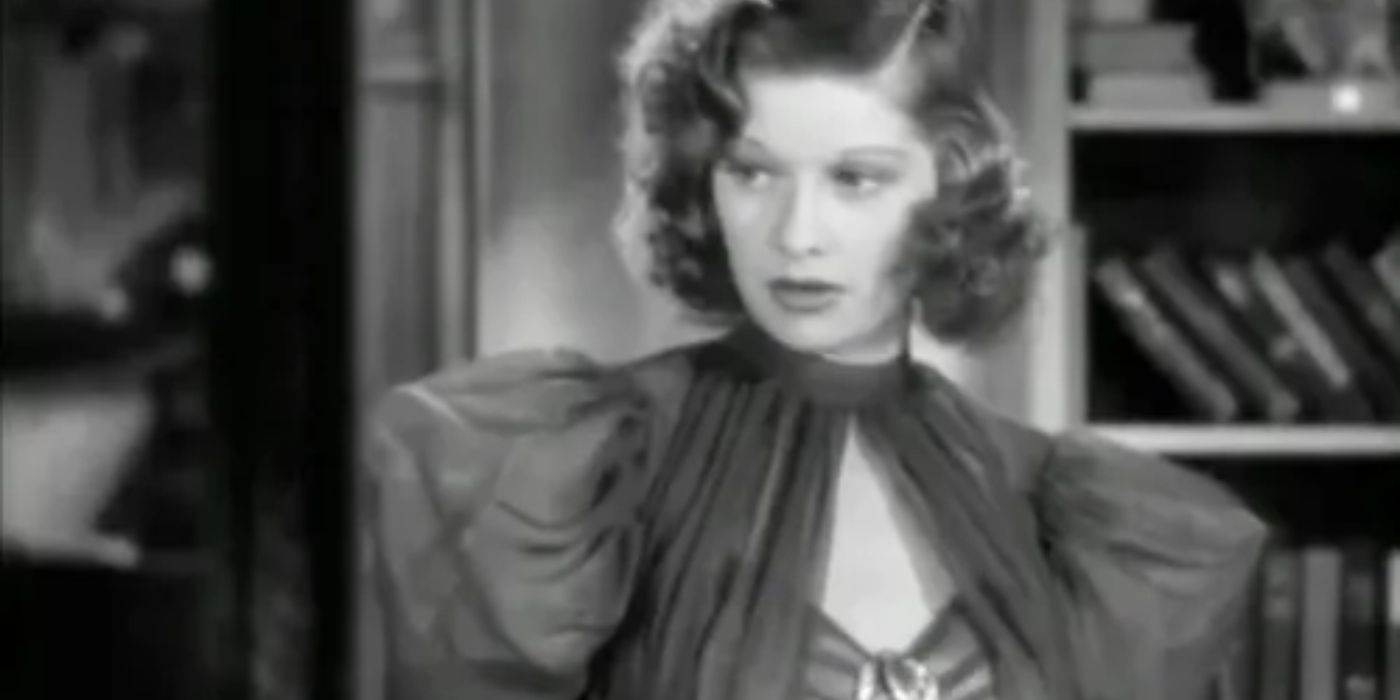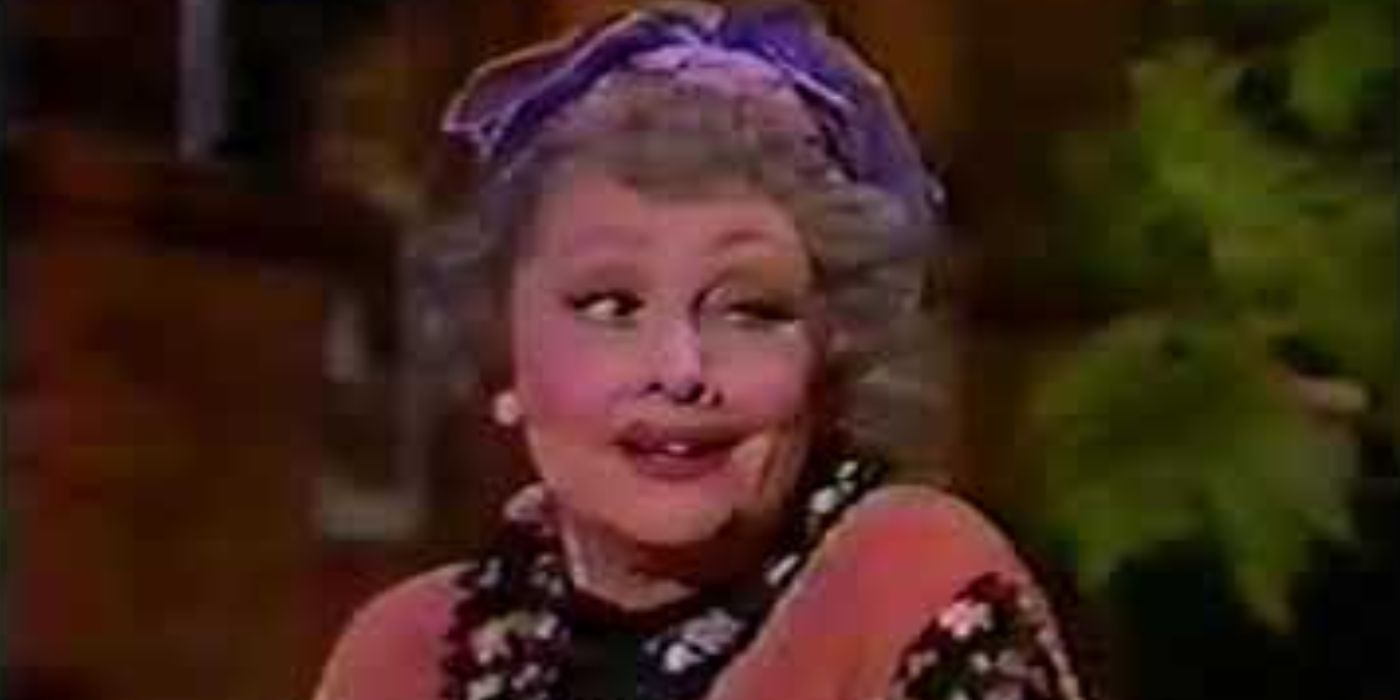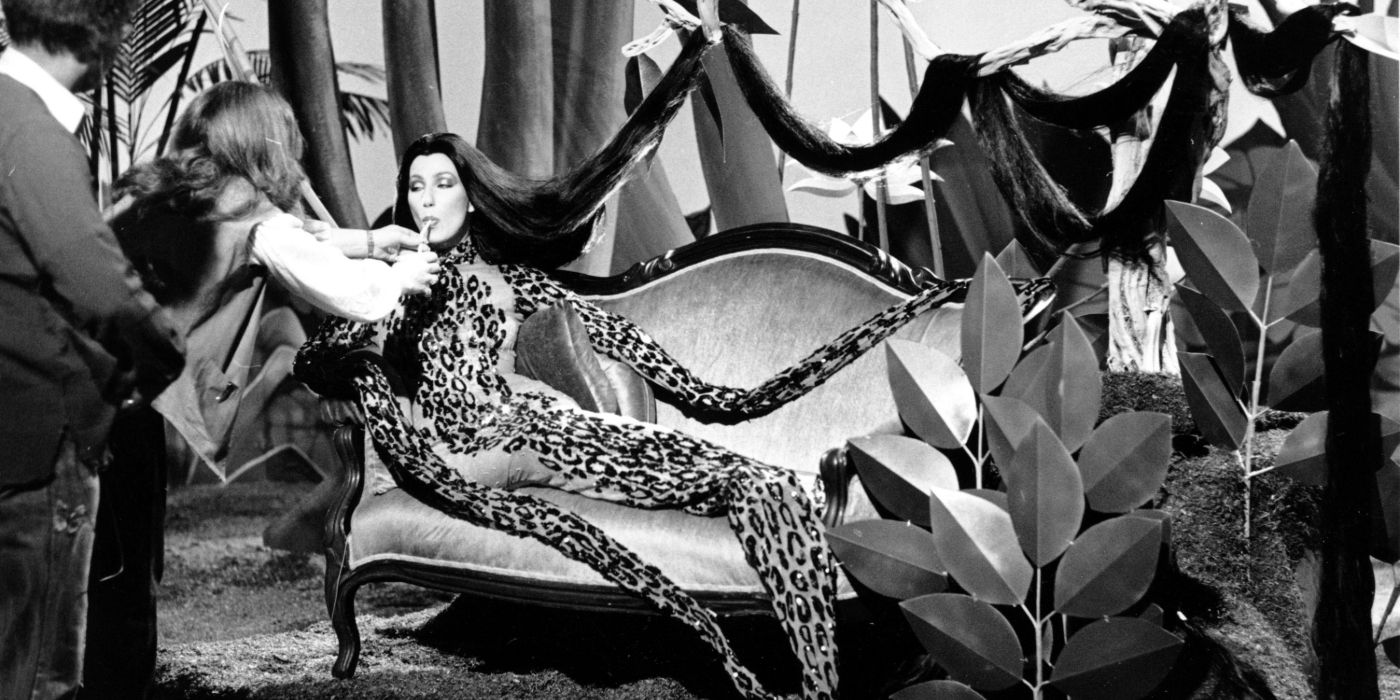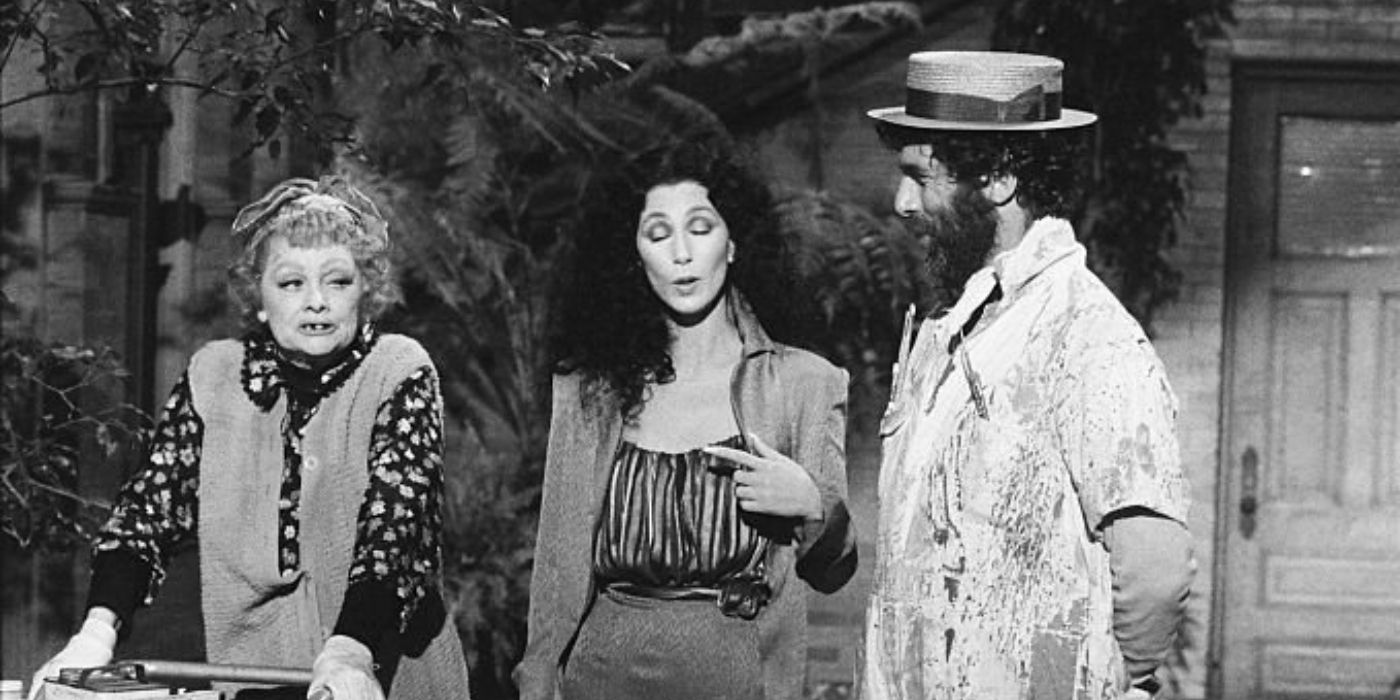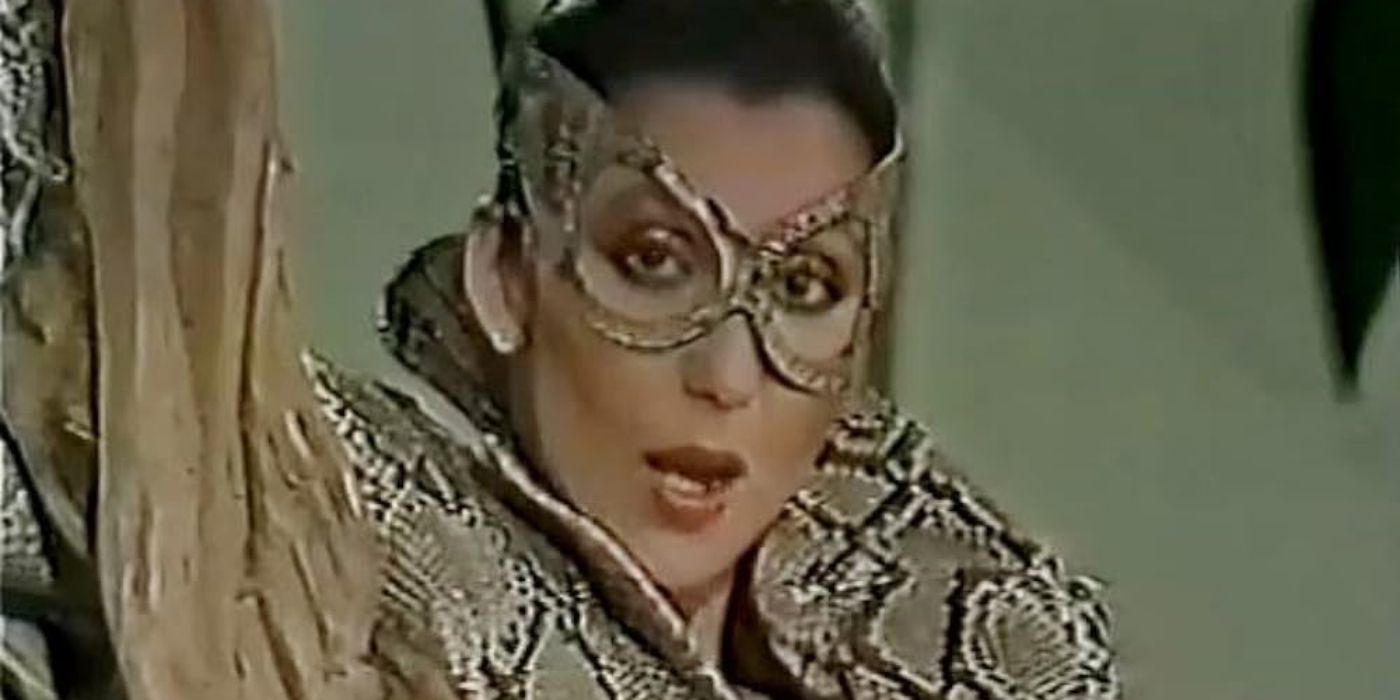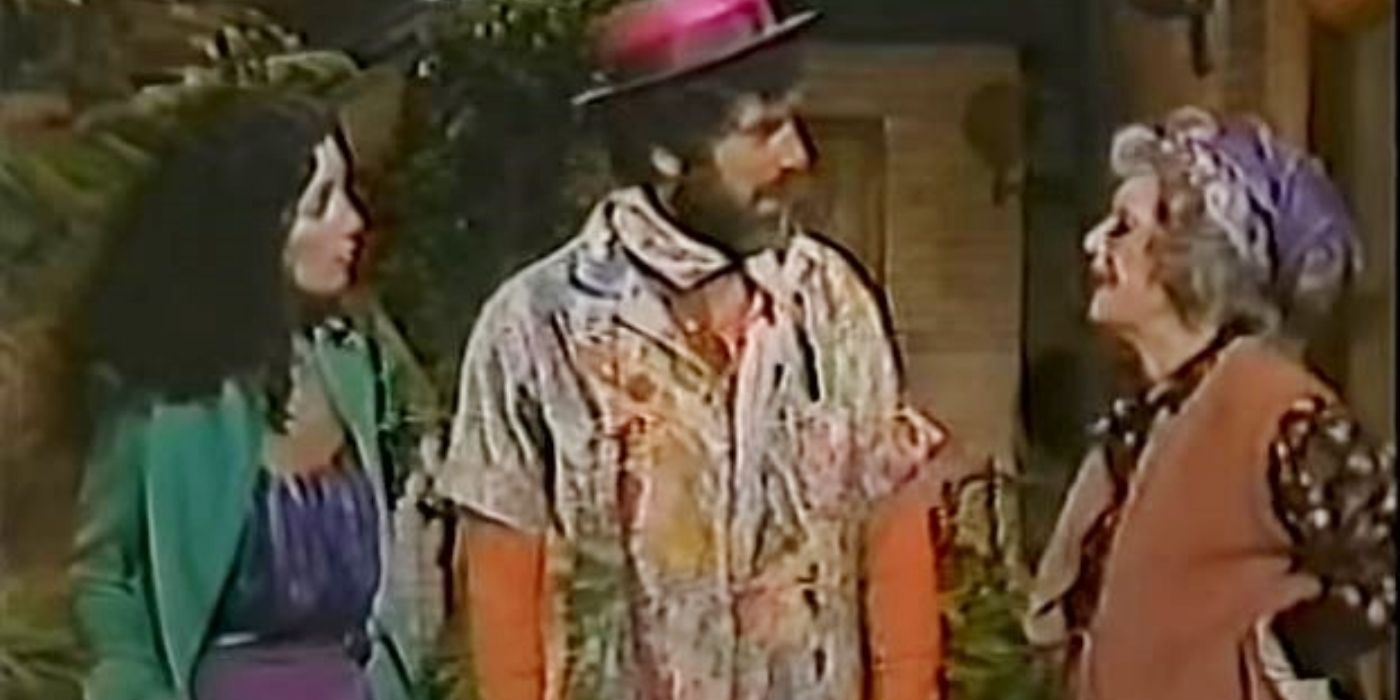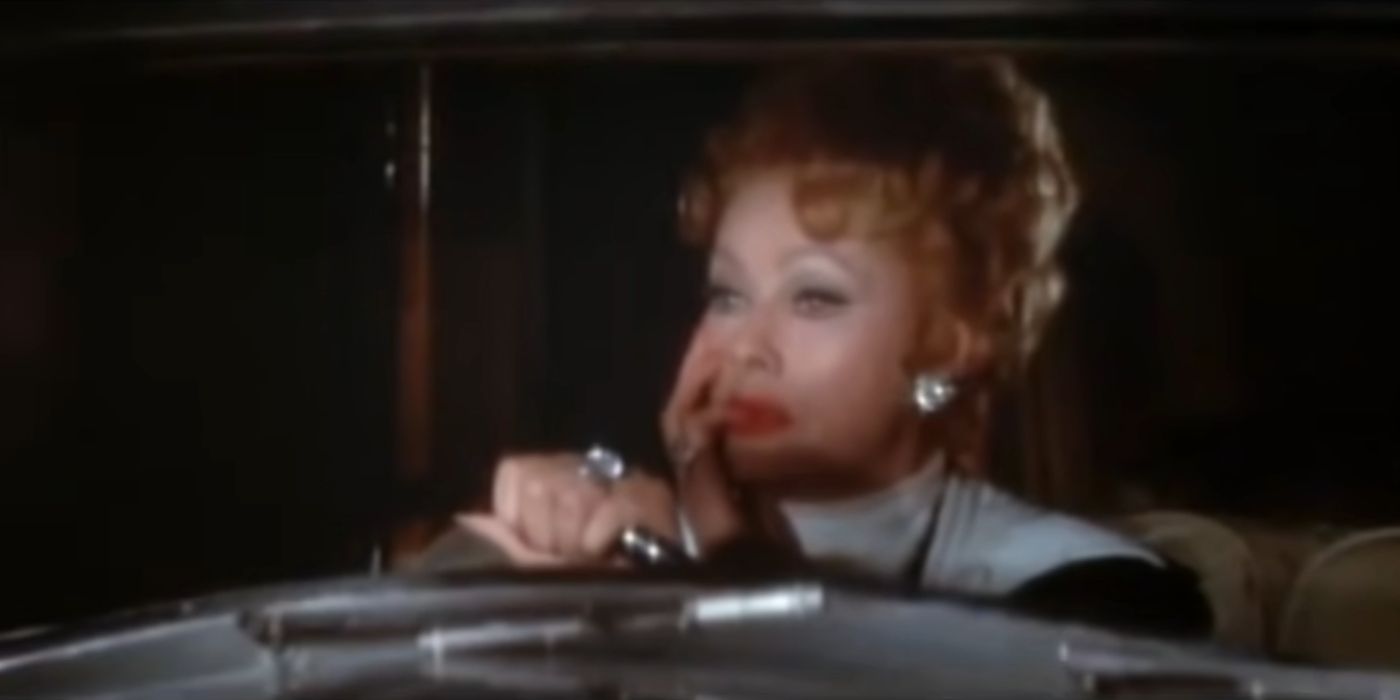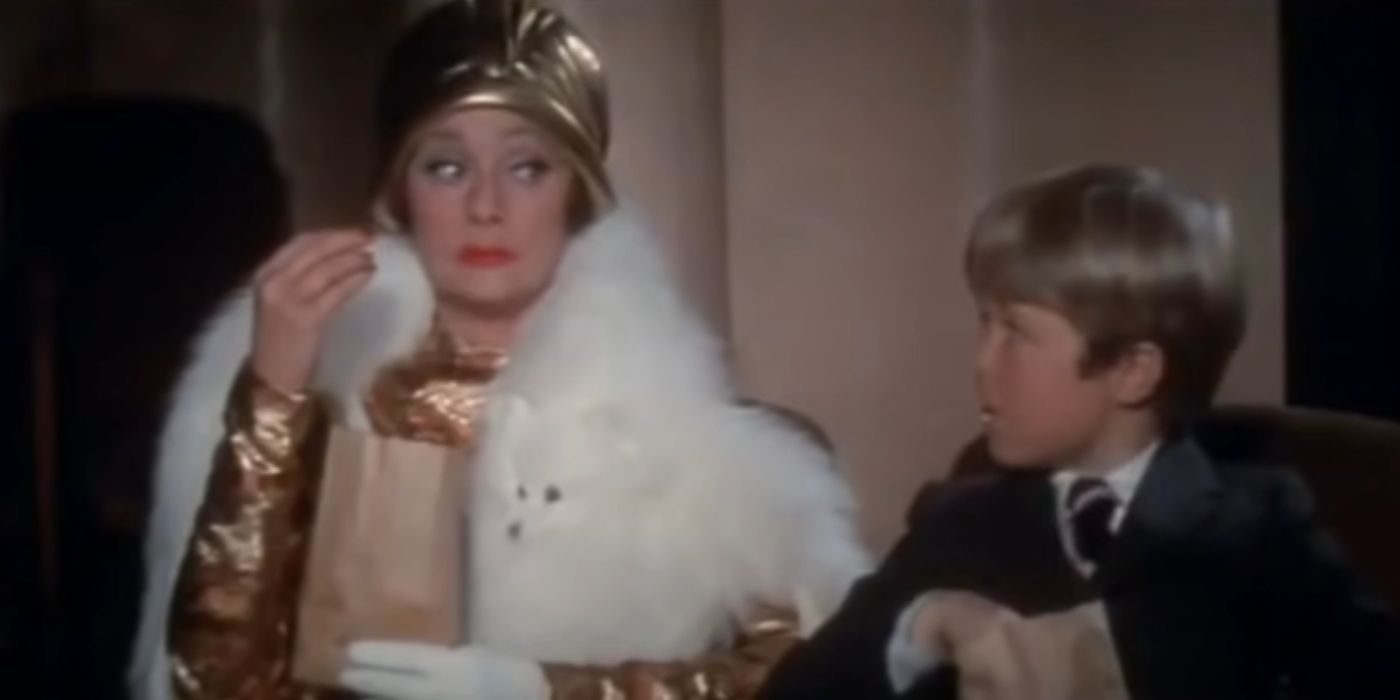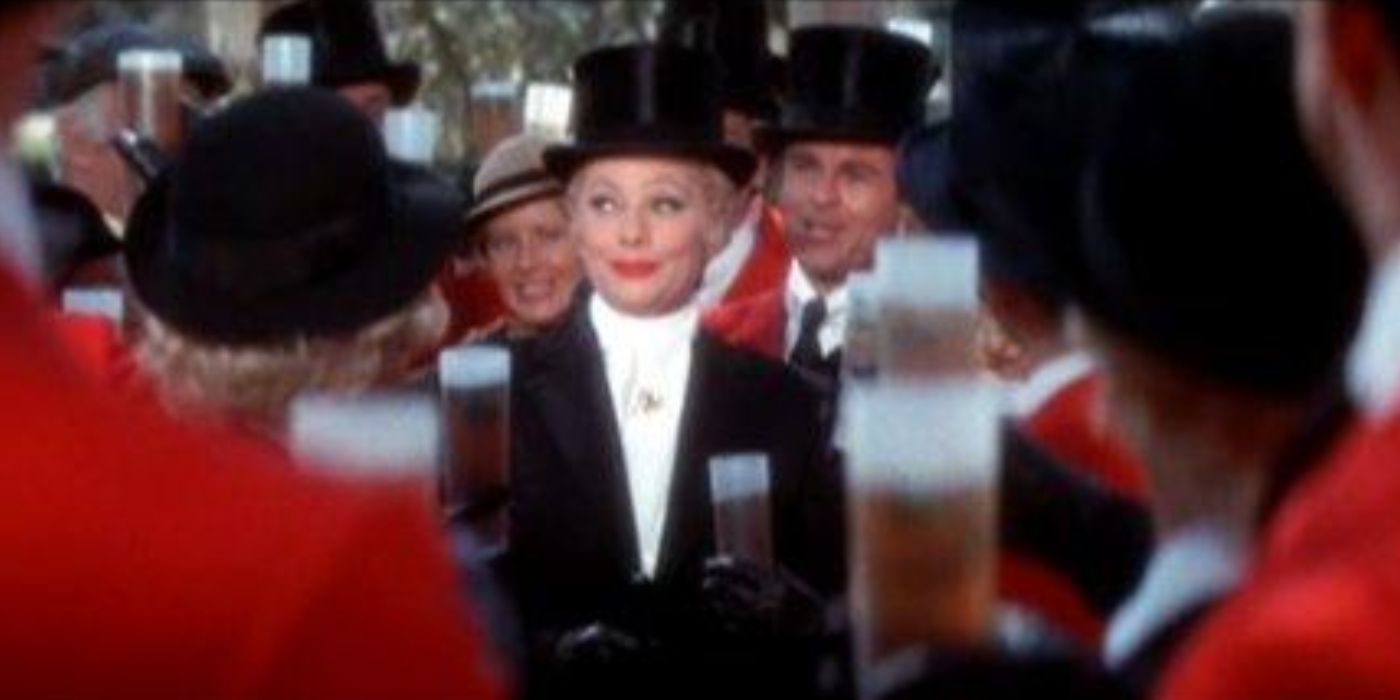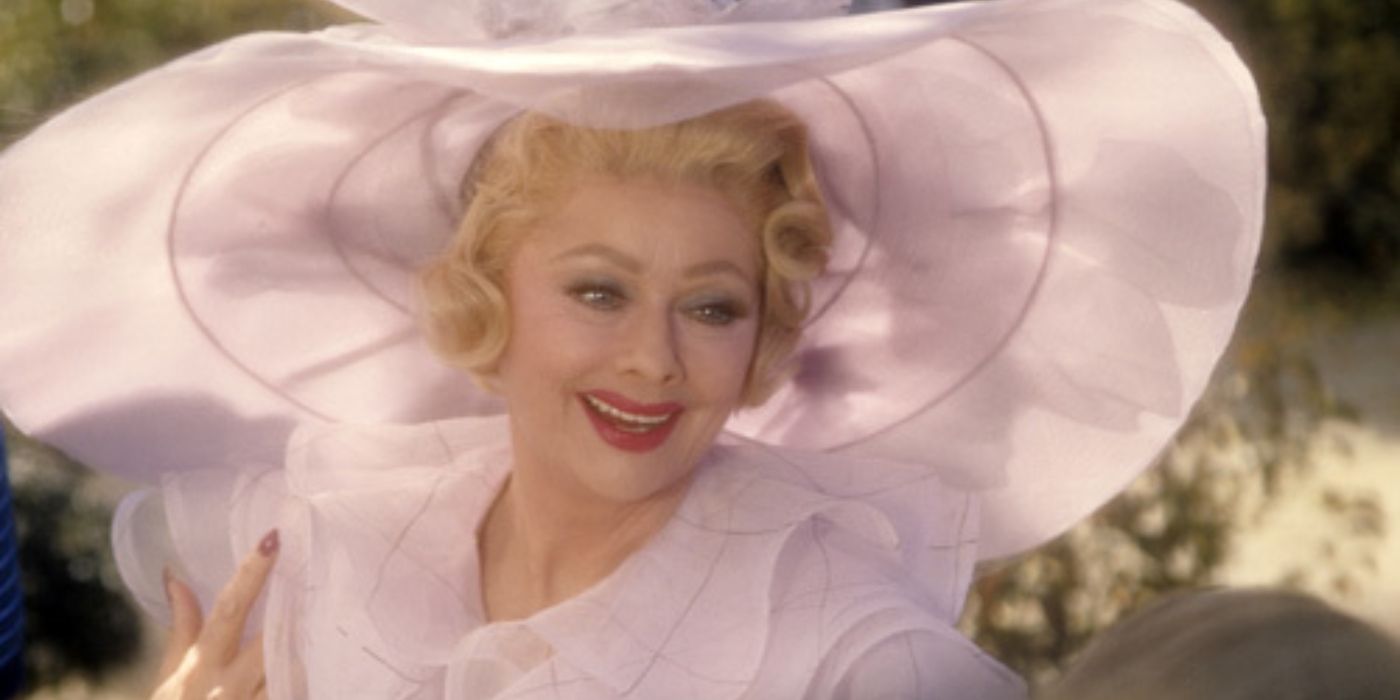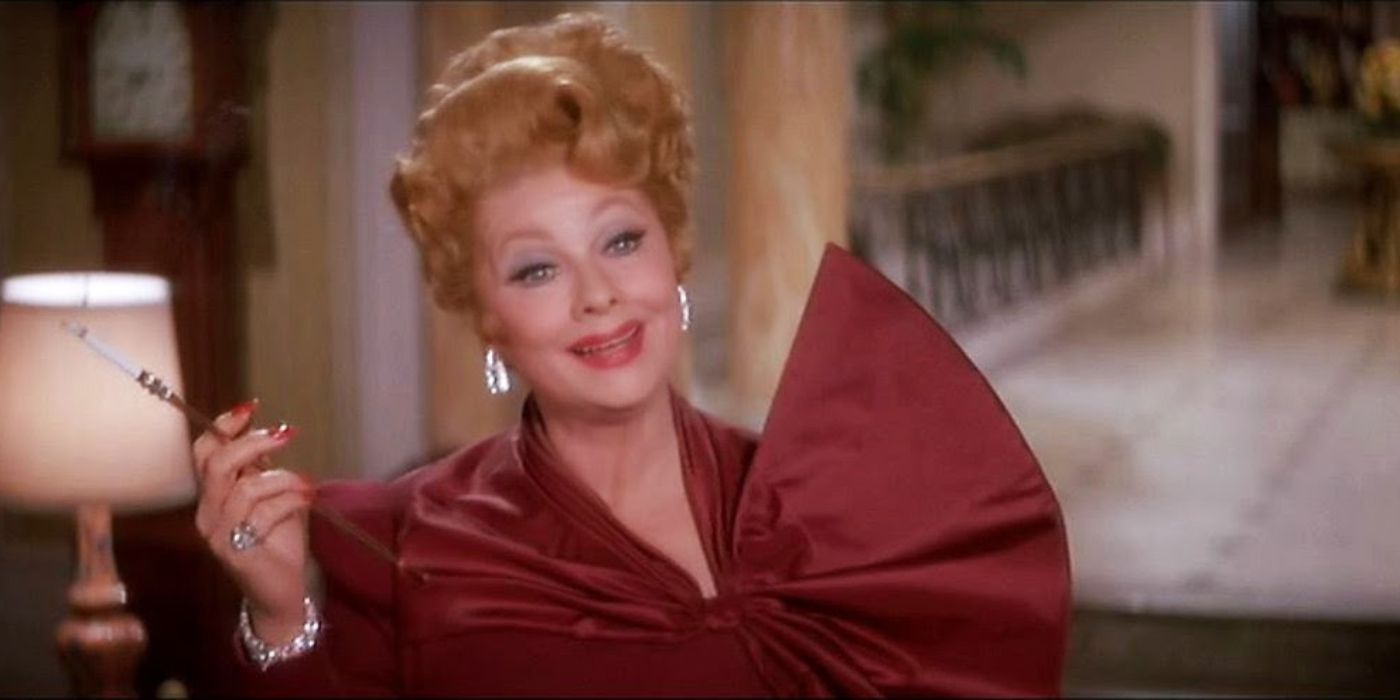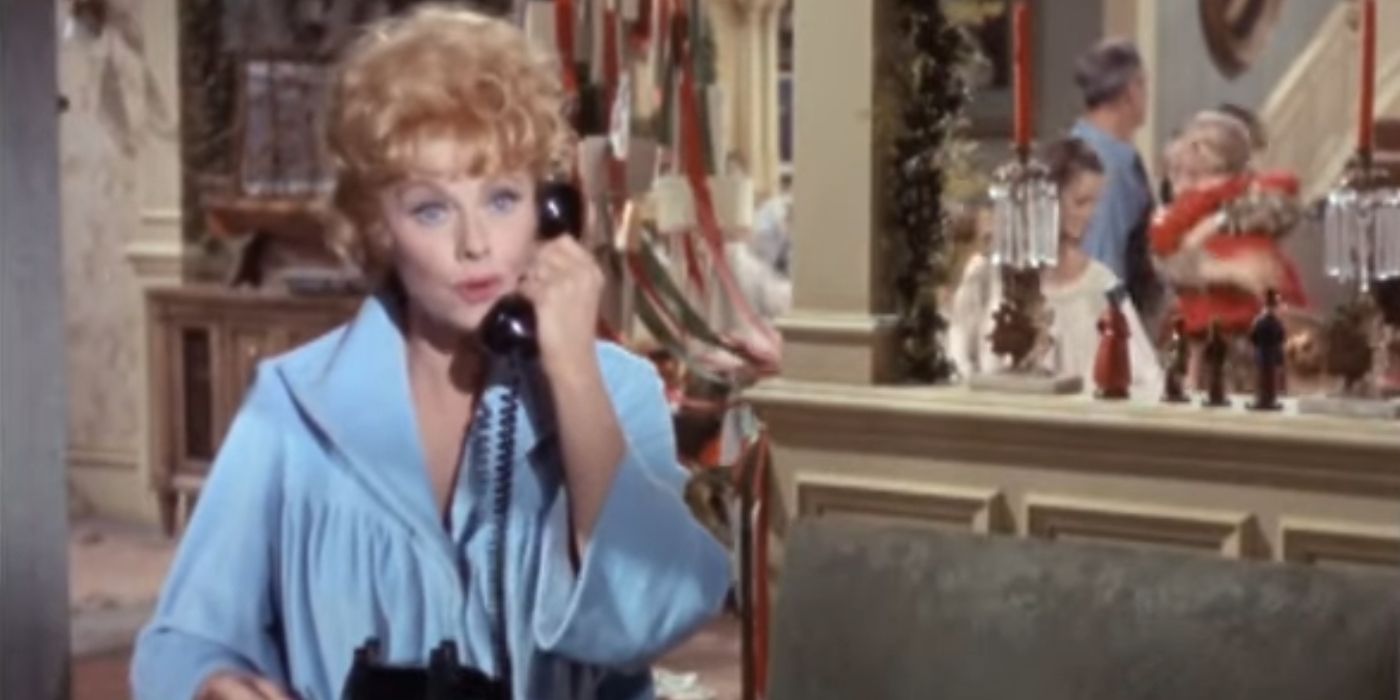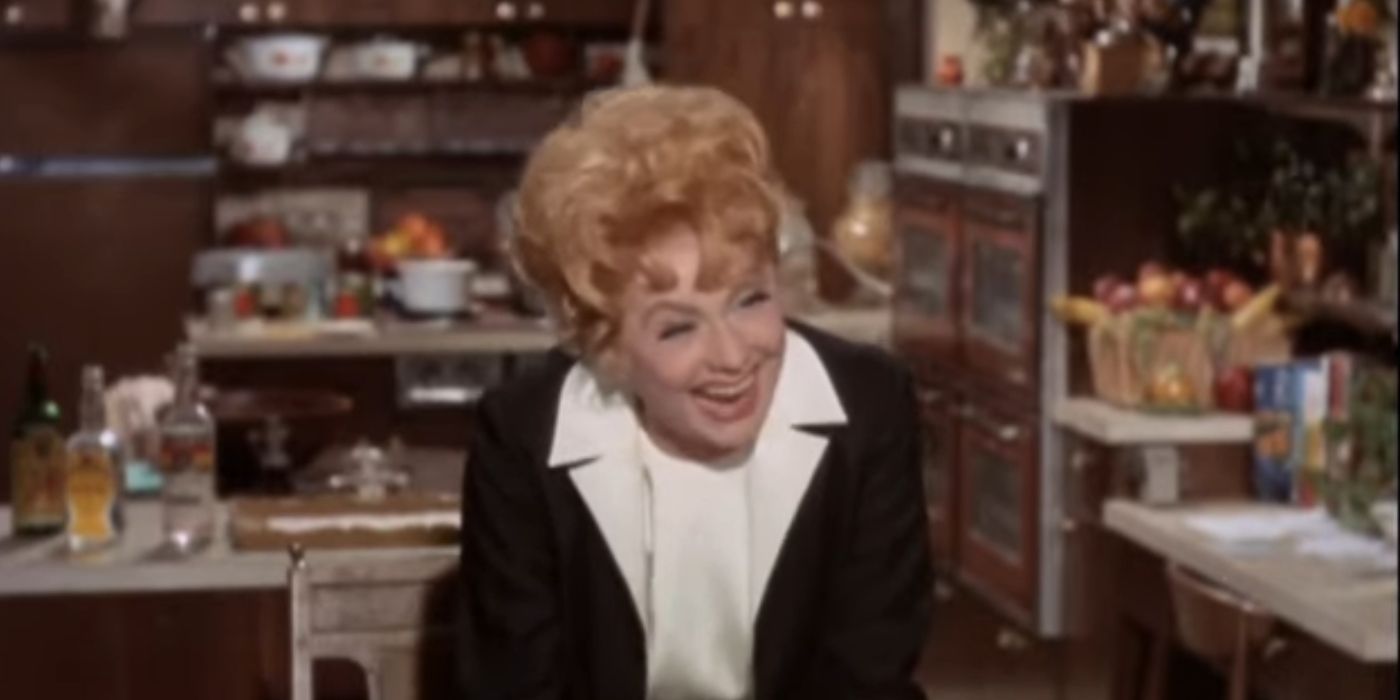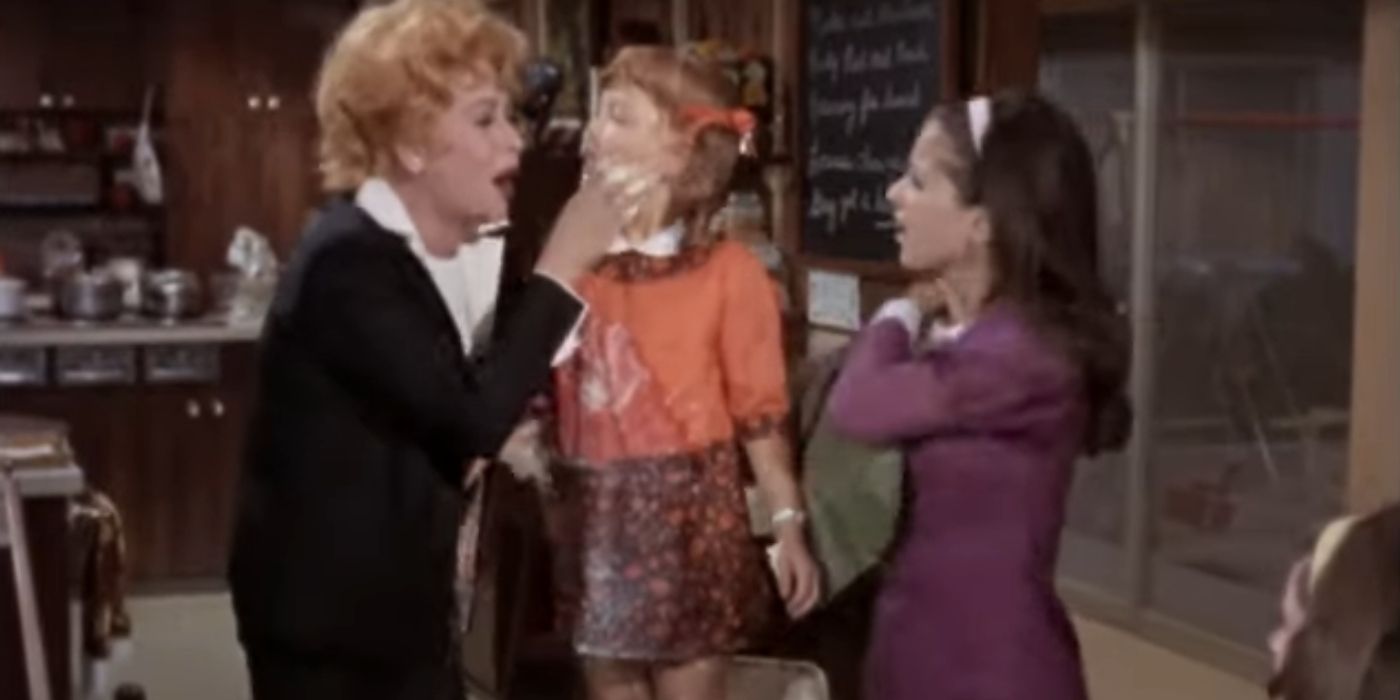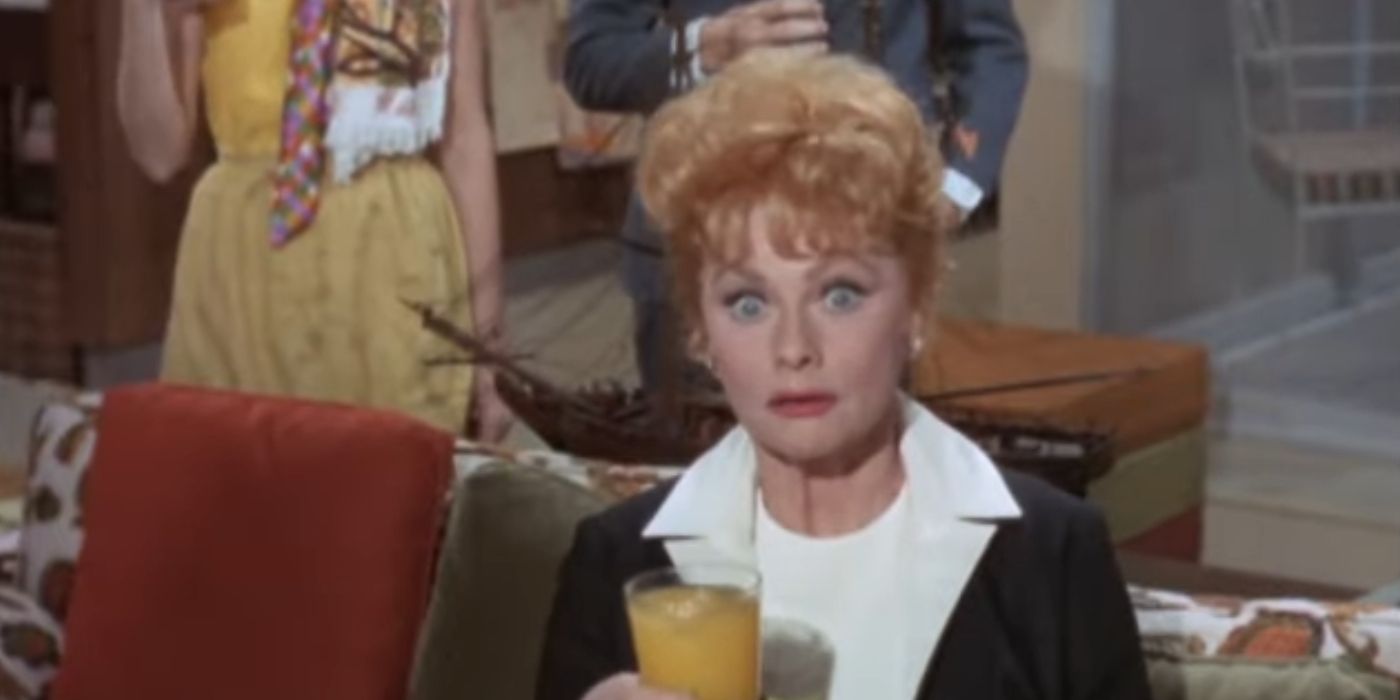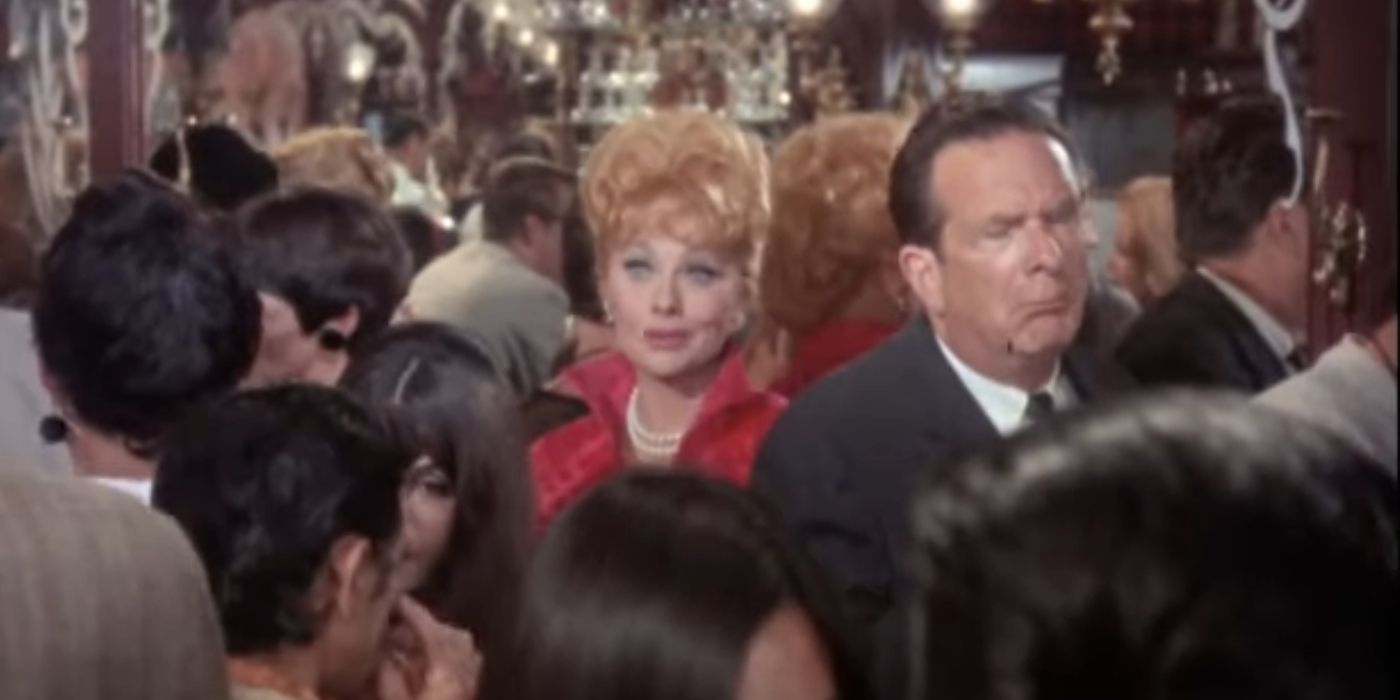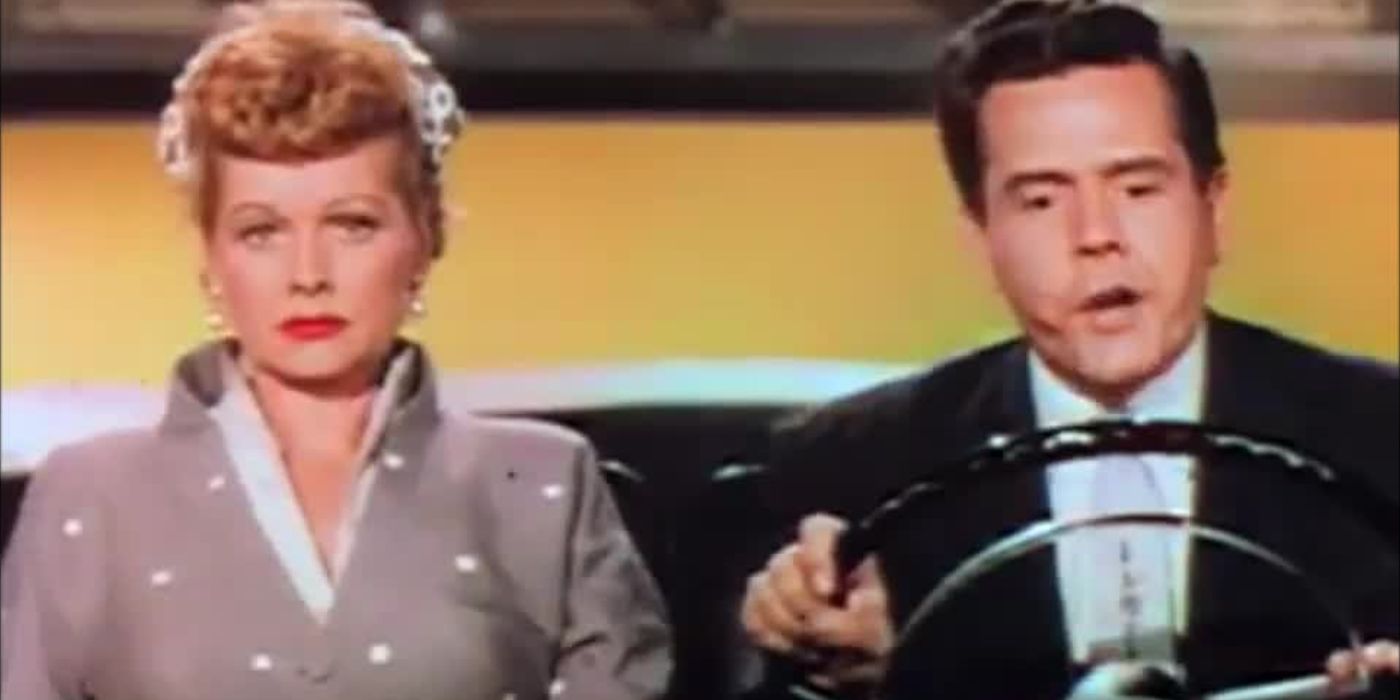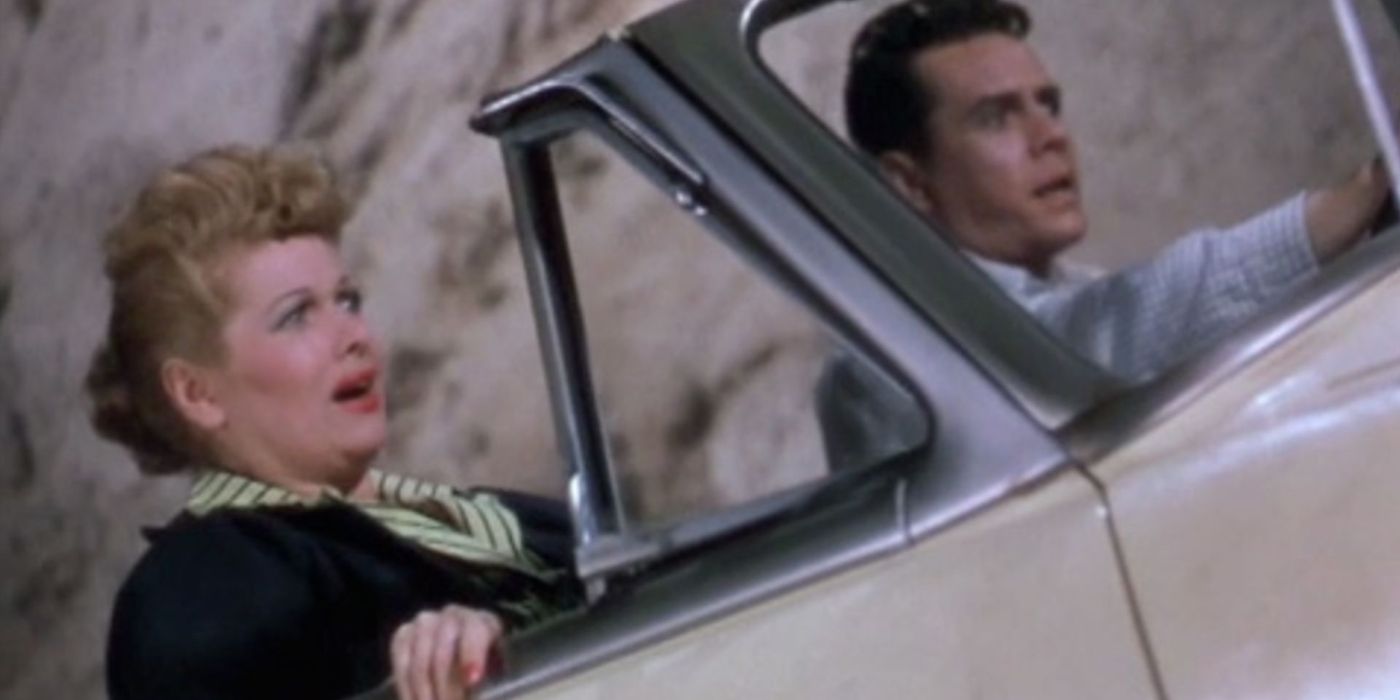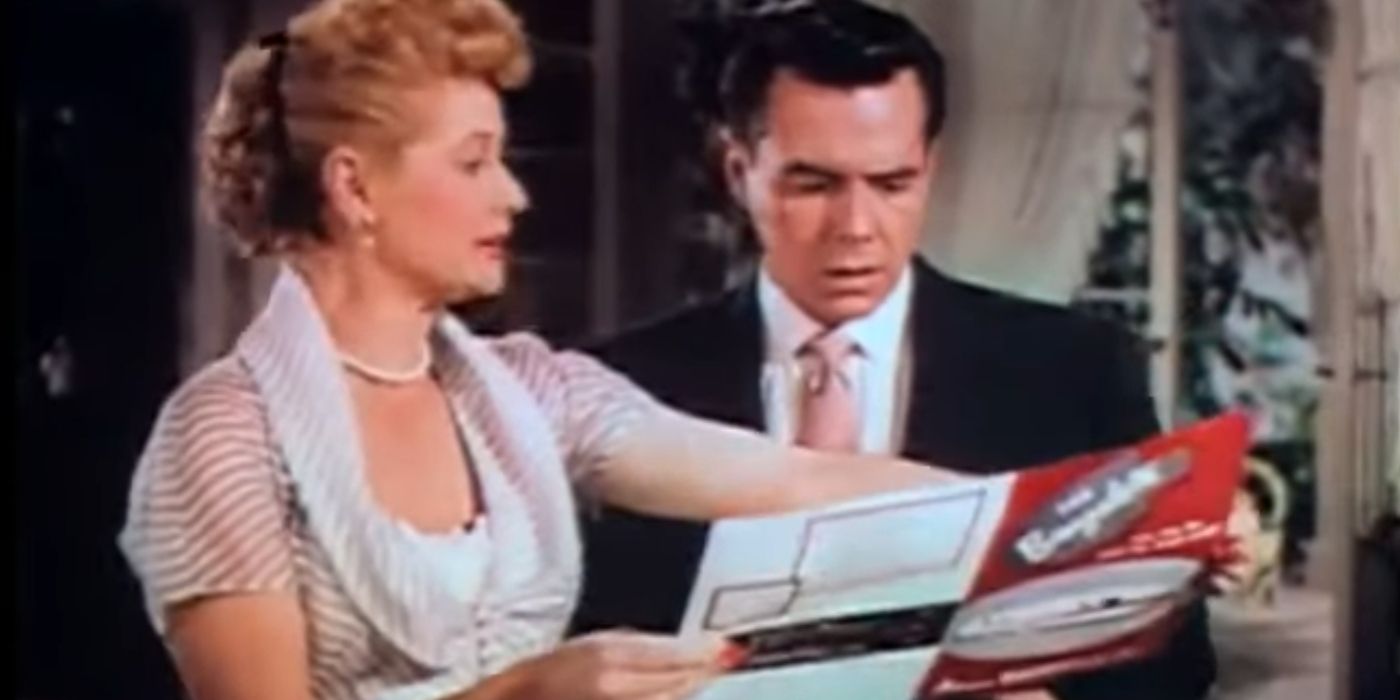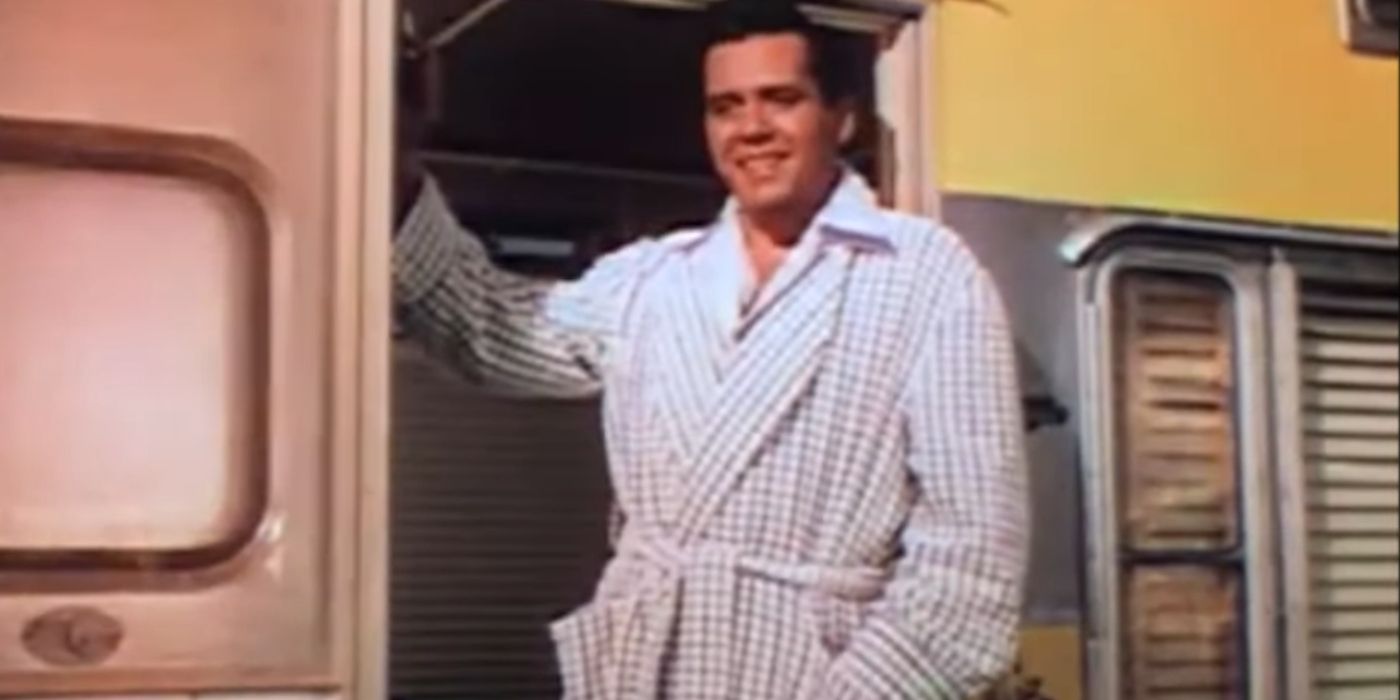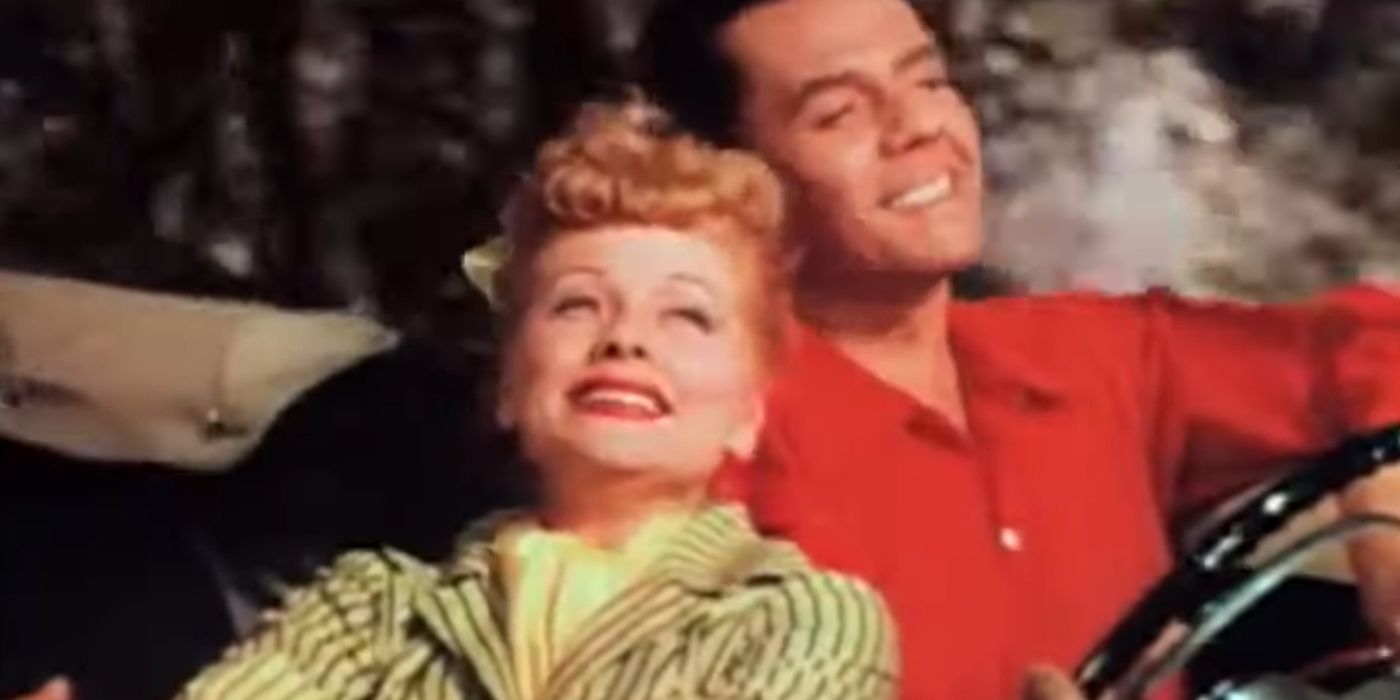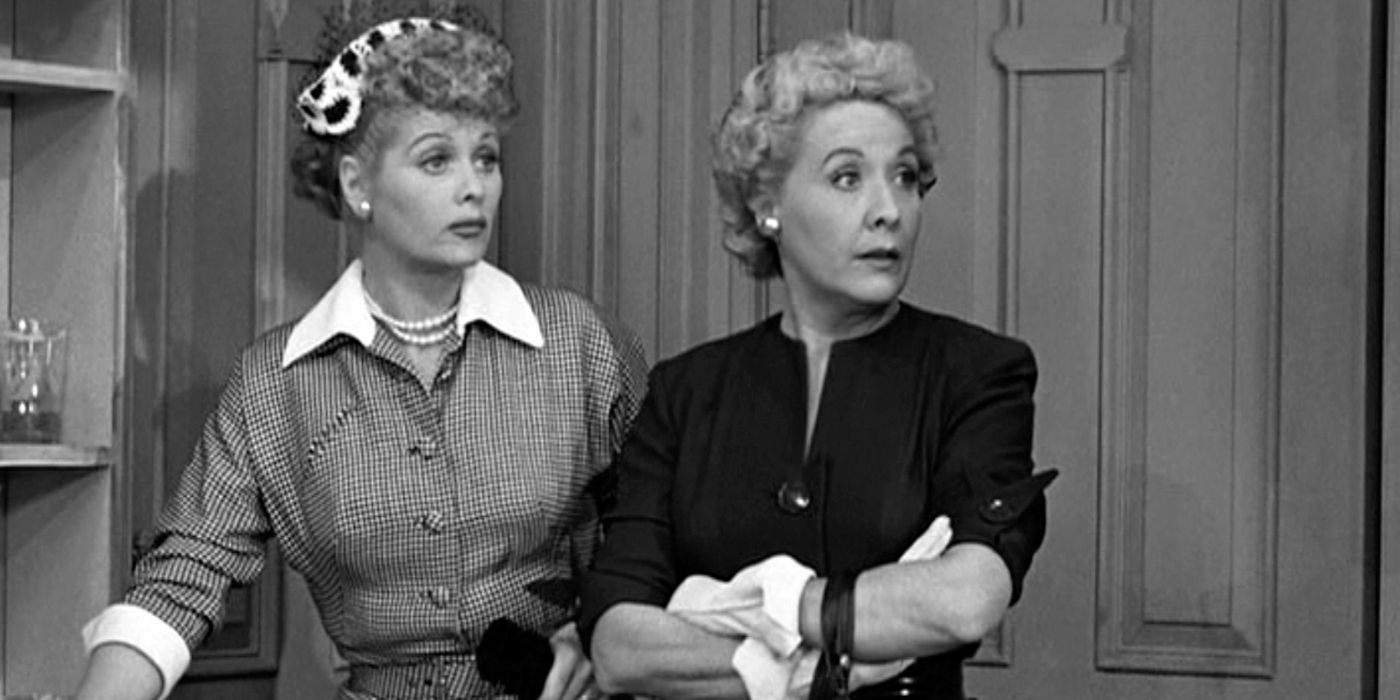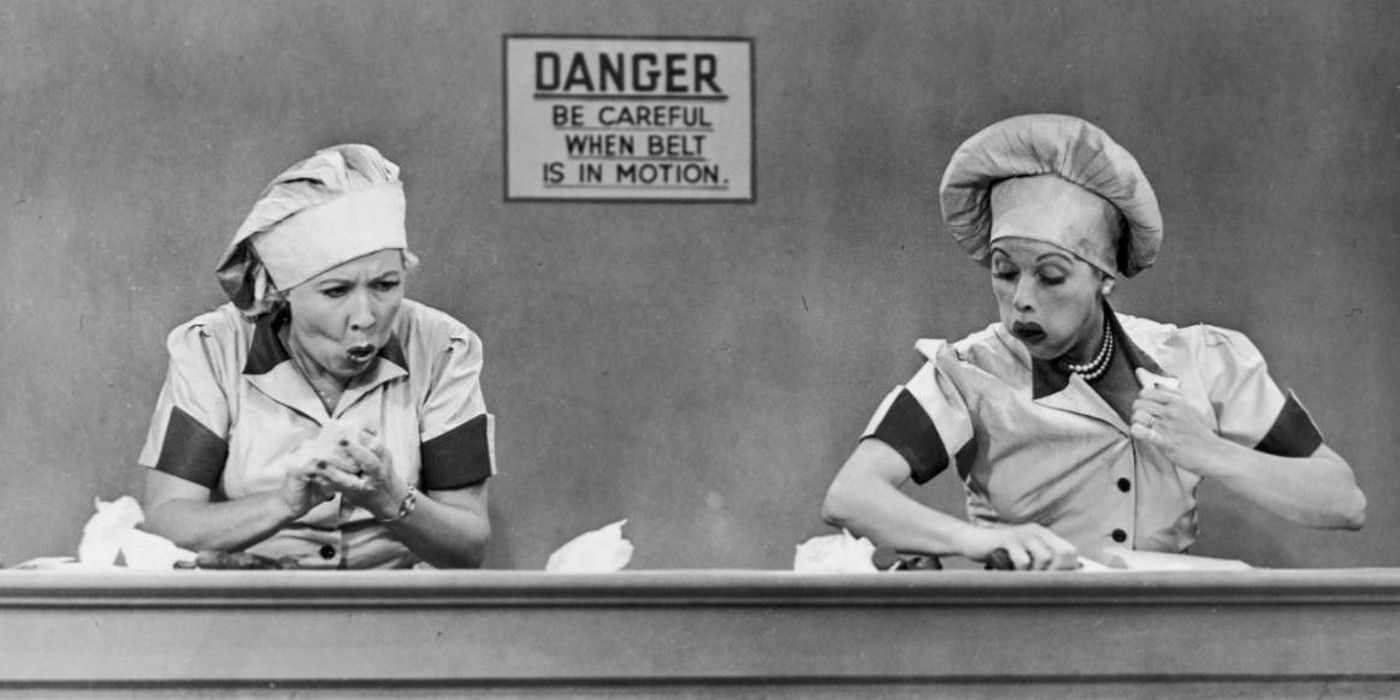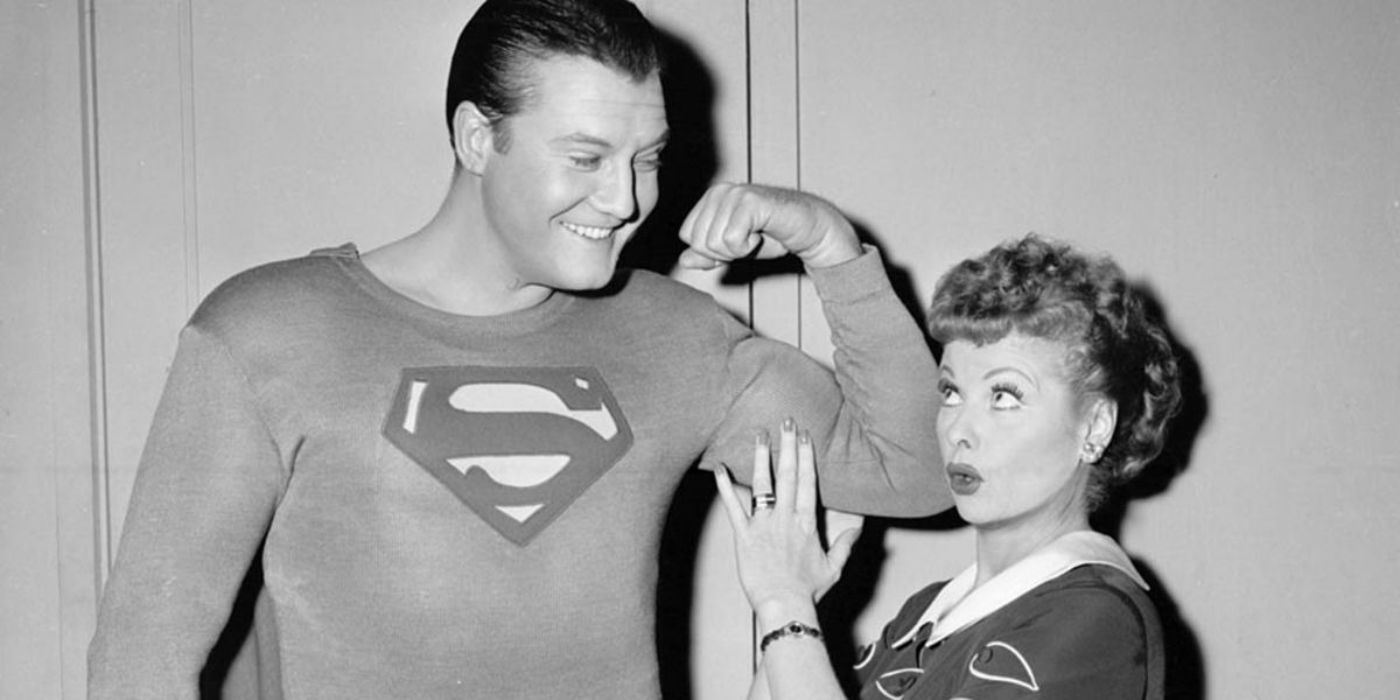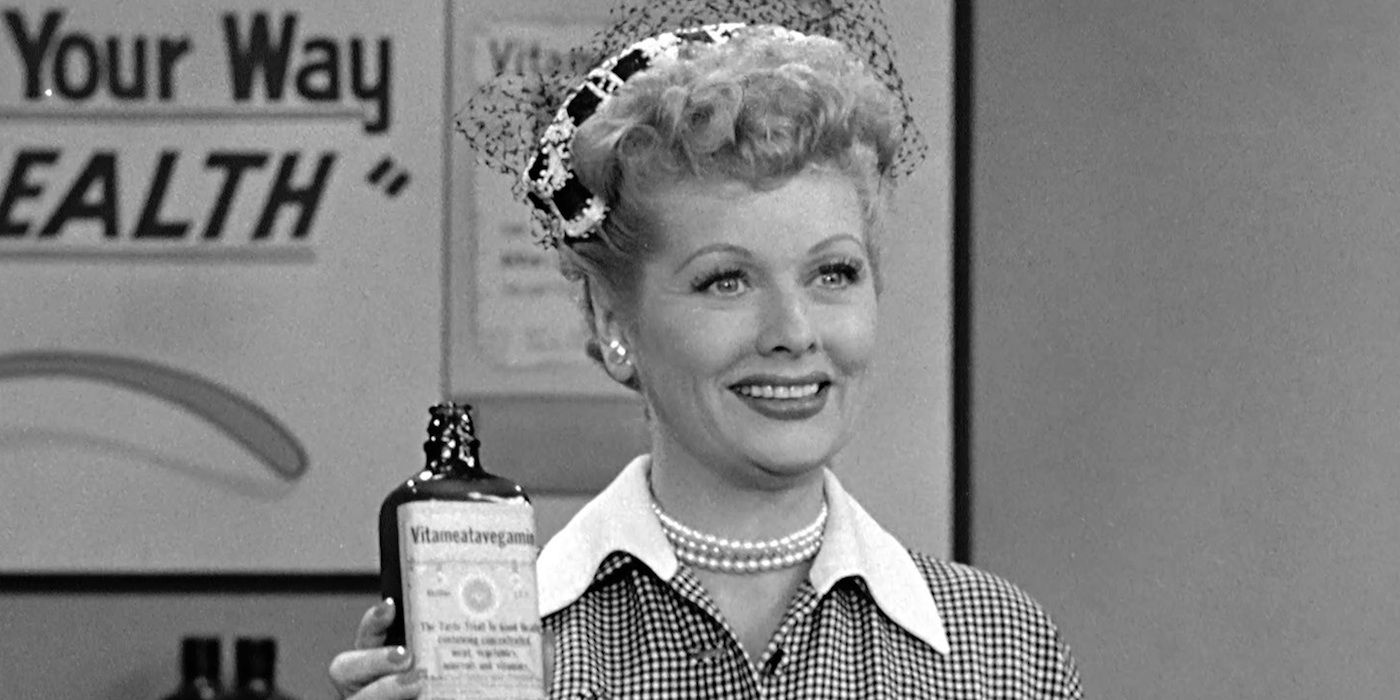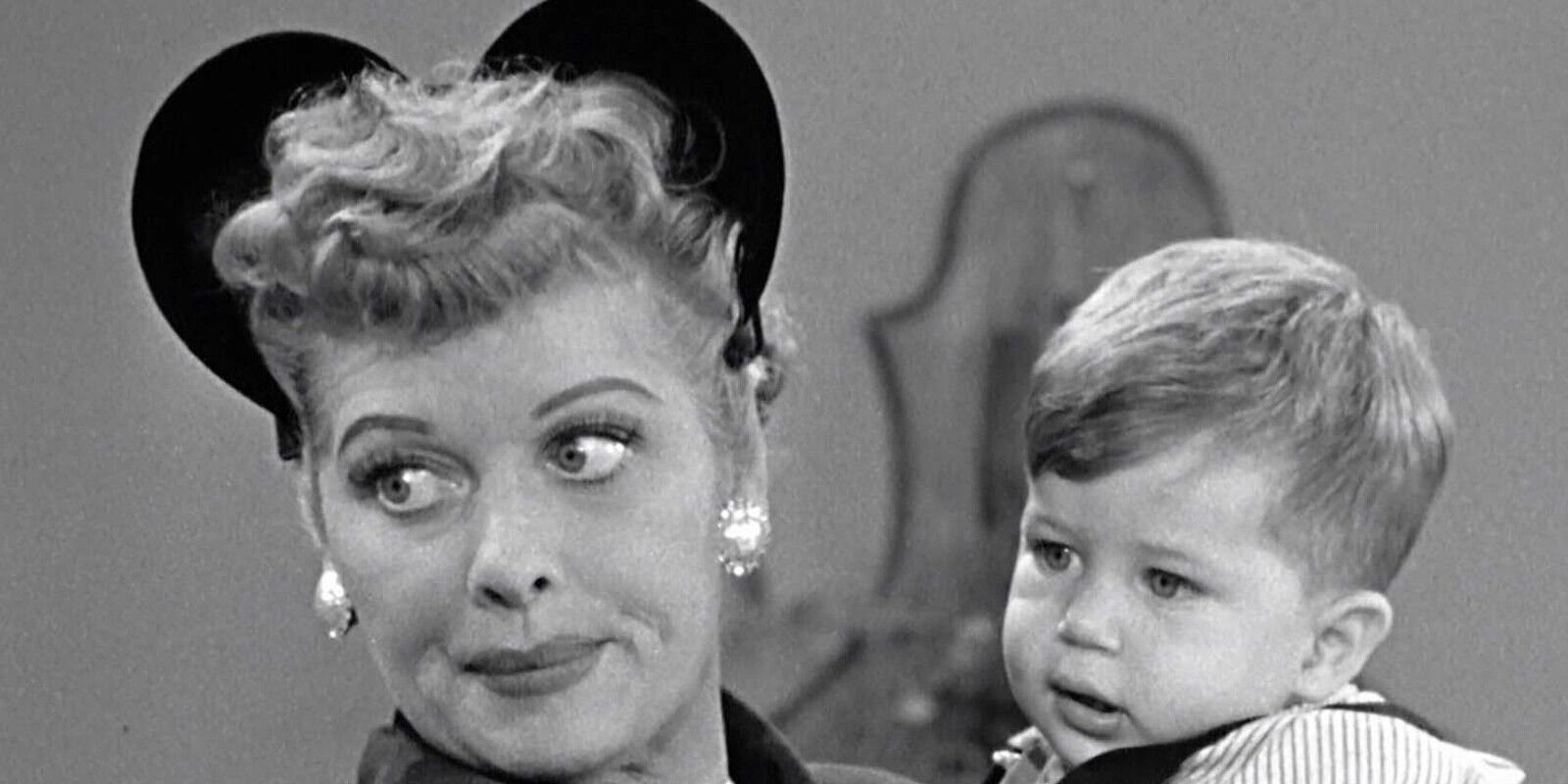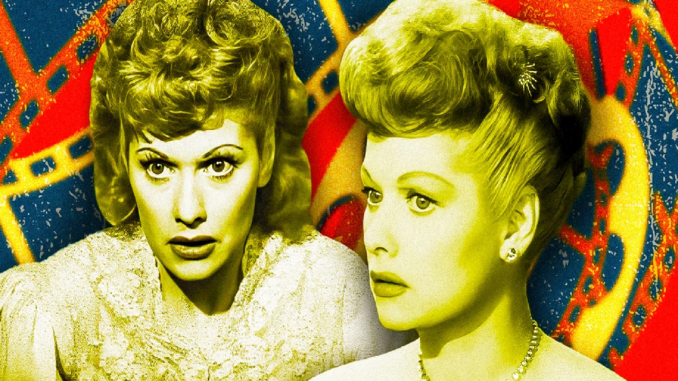
Legendary actress Lucille Ball was responsible for the hit sitcom I Love Lucy but also had a great career as a movie actress. Throughout her career, Lucille Ball started her career in the late 1920s as a model but eventually got her first acting gig as an uncredited extra in the 1933 movie Roman Scandals. Up until her death in 1989, Ball was a celebrated comedian, actress, singer, dancer, and producer and is still remembered to this day. In fact, Desilu Productions, Lucille Ball’s company, launched Star Trek and Mission: Impossible, some of the best TV shows of all time.
During her long career, Lucille Ball’s TV shows and movies bagged an incredible number of award nominations, including an amazing five Primetime Emmy wins. Ball is remembered for her brilliant comic timing, her ability to adapt to a range of different characters, and being a general Hollywood icon. Although audiences knew Lucille Ball for I Love Lucy, her movie career was just as successful, and she appeared in several movies as both a serious and comedic performer.
| Movie Title | Year of Release |
|---|---|
| Stage Door | 1937 |
| The Big Street | 1942 |
| The Dark Corner | 1946 |
| Lured | 1947 |
| The Long, Long Trailer | 1953 |
| I Love Lucy: The Movie | 1953 |
| The Facts Of Life | 1960 |
| Yours, Mine and Ours | 1968 |
| Mame | 1974 |
| Cher… and Other Fantasies | 1979 |
10.The Facts Of Life (1960)
Ball’s Performance As Kitty Resulted In Her First Golden Globe Nomination
1960’s The Facts of Life proved that Lucille Ball’s acting skills, when paired with an equally talented costar, were nothing short of fabulous. Ball and Bob Hope starred opposite each other in The Facts of Life as Kitty (Ball) and Larry (Hope), who fall in love and start up an affair before quickly realizing that their romance wasn’t as expected. Both actors showed off their comedic abilities in this film, and their chemistry was strong throughout, but Ball stands out for her sly demeanor and hilarious attitude as Kitty.
Ball’s performance as the bored housewife was so popular that it earned her a Golden Globe nomination for Best Actress in a Comedy in 1961. Although she didn’t win, losing out to Shirley MacLaine in The Apartment, The Facts of Life established Ball’s abilities as an actress, and she was still greatly celebrated for her role. At this point in her career, Ball already had a highly decorated career, but The Facts of Life proved that she was much more than just Lucy Ricardo.
9.The Big Street (1942)
Breaking Away From Comedic Roles
Although 1942’s The Big Street was never one of Ball’s better-known titles, she had previously stated that it was her favorite (via IMDb). The Big Street saw Ball in one of her earliest leading roles as the cold nightclub singer Gloria Lyons and although the film wasn’t a commercial success, her portrayal of Gloria was particularly notable. Ball was praised for demonstrating the character’s journey, filled with drama and anticipation among her comedic moments, demonstrating her ability to play complex characters.
Ball’s role as Gloria also allowed her to break away from the typical comedic roles she’d become known for.
Ball had brilliant on-screen chemistry with her co-star Henry Fonda, who played the film’s protagonist, busboy Little Pinks. They were both particularly praised for their dynamic in especially emotional moments, such as their dance at the end of the film. Ball’s role as Gloria also allowed her to break away from the typical comedic roles she’d become known for, and her performance was incredibly impactful overall.
8.Lured (1947)
Ball Takes Down A Serial Killer
Lured was a remake of the 1939 French film Pièges, with Ball stepping into the shoes of the protagonist, Sandra Carpenter. The suspense-filled thriller movie once again allowed Ball to portray a character that wasn’t simply comedic, and she was praised for her brilliant job of bringing Sandra’s intelligence and resourcefulness to life. Through her performance, Ball kept audiences engaged and on the edge of their seats as Sandra navigated a new, dark world with a serial killer targeting women who looked just like her.
Sandra’s back-and-forth with Robert (George Sanders) was particularly endearing, and their interactions quickly added an extra layer of depth to the film as they attempted to solve a string of murders. Although she was very powerful throughout Lured, it’s important to note that Ball’s incredible performance was partly down to the strength of the supporting cast, such as Charles Coburn as the unsettling Harvey Temple. Lured was a movie that let Ball show off her talents, with a brilliant blend of comedic and dramatic acting throughout.
7.The Dark Corner (1946)
The Film Was A Noir Match For Lucille Ball
The 1946 crime noir movieThe Dark Corner starred Lucille Ball as the astute secretary Kathleen Stewart, who works for the private investigator Bradford Galt (Mark Stevens). Ball had fabulous chemistry with Stevens throughout the film, which added to the dark noir atmosphere. Kathleen and Galt’s relationship was complex and deep, resulting in some incredibly impactful moments for both actors.
As a character, Kathleen was a standout in the genre, breaking out of the femme fatale trope and being just as useful to the ongoing investigation as Galt was with her intelligence and wit. According to the book Henry Hathaway: The Lives of a Hollywood Director, Ball faced issues with the director behind the scenes but still delivered a stellar performance. Critics praised Ball for standing out in a noir film, a genre she didn’t tend to appear in, especially as her performance demonstrated just how strong a dramatic actress she was.
6.Stage Door (1937)
It Was A Small Role With A Big Impact
In the early days of her career, Ball starred in several small movie roles but was left uncredited, with a few exceptions. 1937’s Stage Door, however, marked the end of this period. Ball as Judy Canfield was her first credited role, although there has been a common misconception for years that it was 1936’s Chatterbox. Despite the character of Judy not being hugely prominent, Ball still managed to catch the audience’s attention with Judy’s sassy one liners.
Considering the number of Hollywood Golden Era actors and actresses in Stage Door, such as Katharine Hepburn as Terry Randall and Ginger Rogers as Jean Maitland, it was impressive that Ball made such an impact in a small role. According to the 2004 book Lucy A to Z: The Lucille Ball Encyclopedia, Ball and Rogers were distant cousins. Stage Door reflected on the very real issues that Hollywood actresses faced at the time, which allowed Ball to show off her comedy skills while still being able to relate to the story despite still being in the early days of her career.
5.Cher… and Other Fantasies (1979)
Lucille Ball as Cher’s Fairy Godmother
In the 1979 TV movie Cher… and Other Fantasies, legendary singer Cher gathered some of the best comedians at that time for a ridiculous camp network TV special. After the musician got trapped in a strange building and began exploring, Cher found herself in several strange musical sequences, scored with songs from the Cher album “Take Me Home,” including one with several women from history all wearing clothes designed by the iconic Bob Mackie. In Cher… and Other Fantasies, Ball portrayed a cranky and bitter cleaning lady who helped save the day.
Ball’s first scene sees her singing “Bibbidi-Bobbidi-Boo” from Cinderella, which was not only comical to watch but also fitting for the story. Ball’s raspy voice and dedication to the character were incredibly strong, which proved that the actress had the ability to effectively apply herself to any role, no matter how big or small. Although the focus was on Cher, that didn’t stop Ball from stealing the show, and she continued to show this determination throughout her career.
Lucille Ball’s first appearance in Cher… and Other Fantasies comes at the 5:30 minute mark.
4.Mame (1974)
It Was Lucille Ball’s Final Movie
Lucille Ball’s last feature film before her death in 1989 was Mame, which was released in 1974. Mame was inspired by the 1966 Broadway musical of the same name, which had been adapted from the 1955 novel Auntie Mame by Patrick Dennis. Even with a huge amount of source material, Ball still put her own spin on the titular character. Although Ball didn’t know Mame would be her last full-length movie, she performed as Mame Dennis as if she did, receiving praise for her interpretation and earning a Golden Globe nomination for Best Actress in a Comedy or Musical.
Ball was praised for several elements of her performance, such as her comedic timing and dramatic responses to other characters.
Mame included several musical numbers that Ball loaned her voice to, including “It’s Today,” which set up her character brilliantly. Although Mame received mixed reviews upon release, the film still beautifully highlighted Ball’s entire career and experience as an actress. Ball was praised for several elements of her performance, such as her comedic timing and dramatic responses to other characters, including Bea Arthur as Vera Charles. Overall, Mame provided an amazing reflection on Ball’s decorated career, and her portrayal of Mame Dennis was a fitting final role for the actress.
3.Yours, Mine and Ours (1968)
It Was Ball’s Hilarious Take On Motherhood
Yours, Mine and Ours was one of Lucille Ball’s most notable movies, mainly because of her leading role as the widow Helen. Much like in The Big Street, Ball had brilliant chemistry with Henry Fonda, who played Frank. Interestingly, the film was based on the real-life versions of Helen and Frank, using Helen’s book Who Gets the Drumstick? as inspiration. For the time period, Yours, Mine and Ours had a relatively modern storyline, with Ball and Fonda marrying and blending their eighteen children into one family, which also set up some hilarious moments throughout.
Ball’s voice-over narration also added a deeper layer to her character.
While Ball was very funny, her dramatic performance was also particularly strong. Amazingly, Ball demonstrated the struggles of an overworked, overtired mother, all wrapped up in a wholesome family drama. Ball’s voice-over narration also added a deeper layer to her character, and in doing so, the actress proved that she could still give a solid performance even if she weren’t on screen. Although Yours, Mine and Ours received lukewarm critical reviews upon its release, it later received the popularity it deserved, mainly due to Ball’s iconic performance, which earned her a Golden Globe nomination for Best Actress.
2.The Long, Long Trailer (1953)
Ball and Arnaz Gave An Amazing Portrayal Of Newlyweds
Throughout her career, Ball frequently worked with Desi Arnaz before their divorce in 1960. After meeting on the set of Too Many Girls, the couple worked together on multiple projects, including I Love Lucy. However, The Long, Long Trailer was the first movie they starred in together as romantic leads. The Long, Long Trailer followed Arnaz and Ball’s characters, Tacy and Nicky Collini, in the early days of their marriage and how they coped with an array of absurd yet comical situations as they traveled across the United States.
Ball was especially praised for her use of physical comedy, especially in one notable moment where Nicky tries to teach Tacy to drive.
Arnaz and Ball’s comedy skills were very strong in The Long, Long Trailer, and used their own marriage off-camera to motivate their roles. Ball was especially praised for her use of physical comedy, especially in one notable moment where Nicky tries to teach Tacy to drive. Out of all of her movies, The Long, Long Trailer stood out for Lucille Ball’s authentic and relatable performance as Tacy. The role showed Ball at her very best as a comedic actress, and the film continued to be a beloved classic for years after its release.
1.I Love Lucy: The Movie (1953)
Ball’s Hit Sitcom On The Silver Screen
While Lucille Ball had many outstanding movies in her filmography, I Love Lucy: The Movie was her best. The film was originally made in 1953 as a spinoff of the iconic sitcom of the same name but never got a theatrical release and was shelved. I Love Lucy: The Movie was finally released in 2001 as a part of the I Love Lucy 50th-anniversary special. At a glance, I Love Lucy: The Movie appeared to be the first few episodes of the sitcom cut together into a feature-length film, but its additional scenes created a whole new storyline.
I Love Lucy: The Movie can be considered an example of a meta movie as the added scenes followed a young couple who attended the filming of an episode of I Love Lucy. Ball was particularly praised in I Love Lucy: The Movie for her ability to seamlessly jump between playing herself and Lucy Ricardo, but also for creating the concept in the first place. Although I Love Lucy didn’t get an official movie, this project beautifully represented Lucille Ball and her long-spanning career, her comedic abilities, and the well-loved franchise as a whole.
